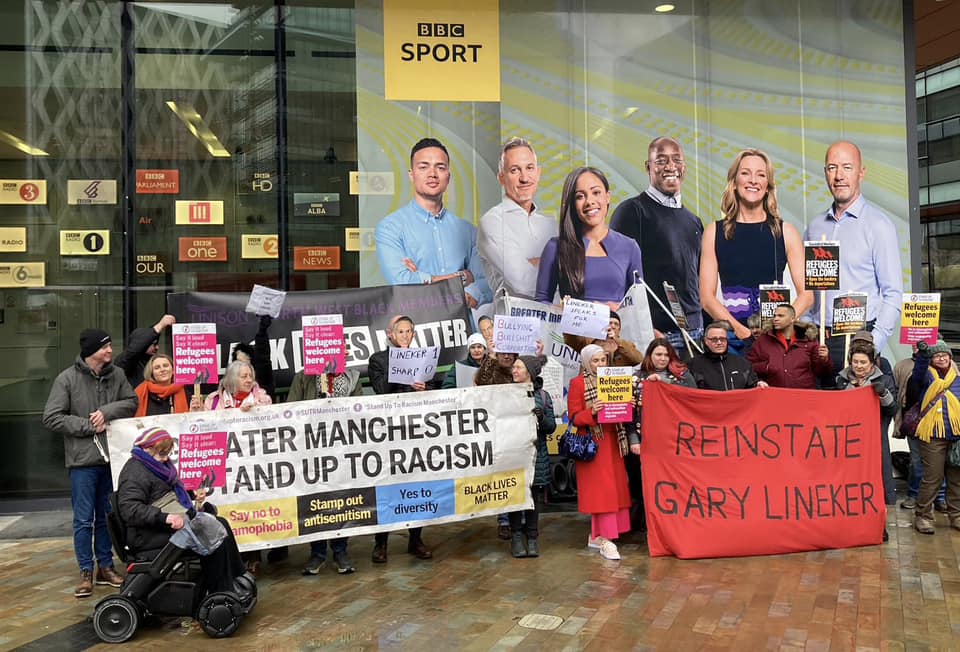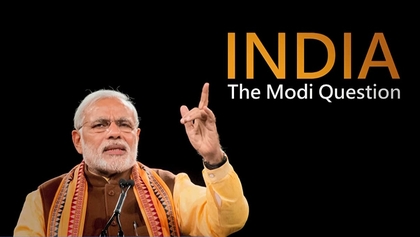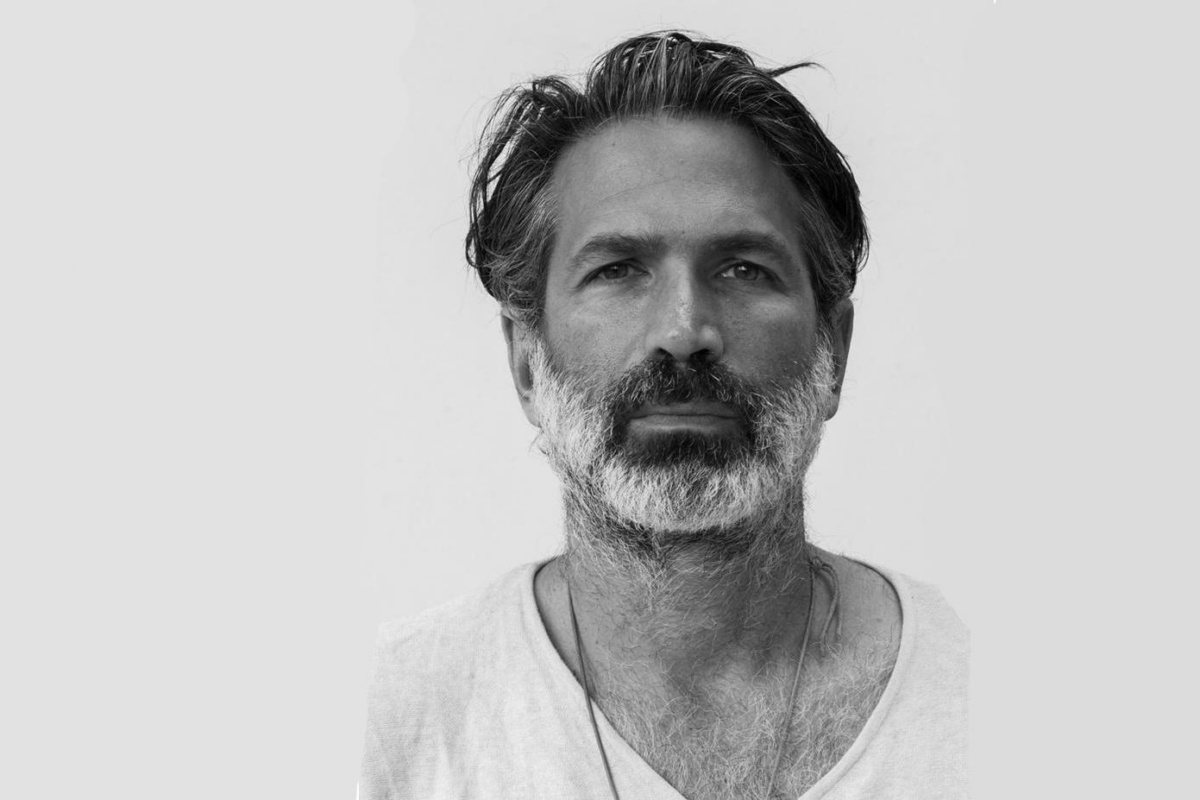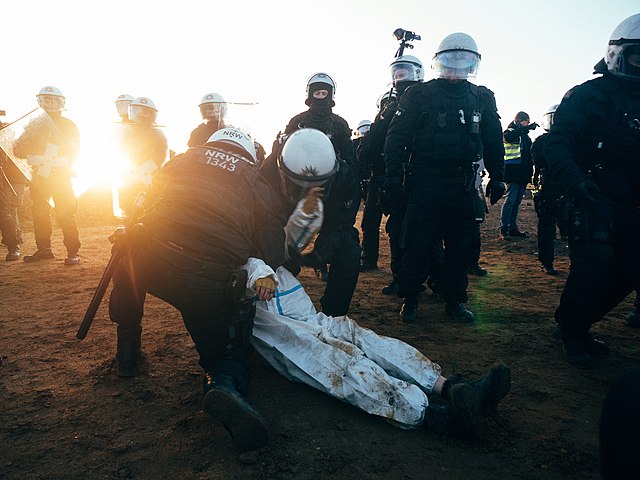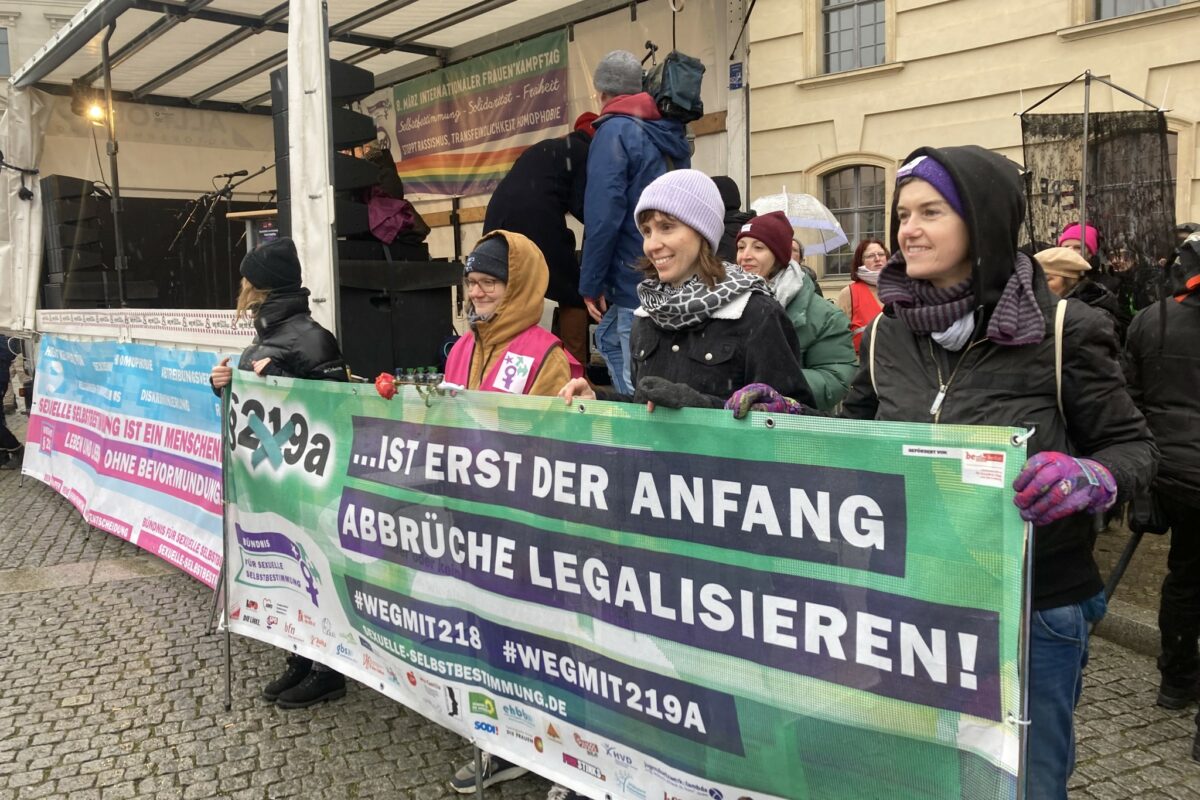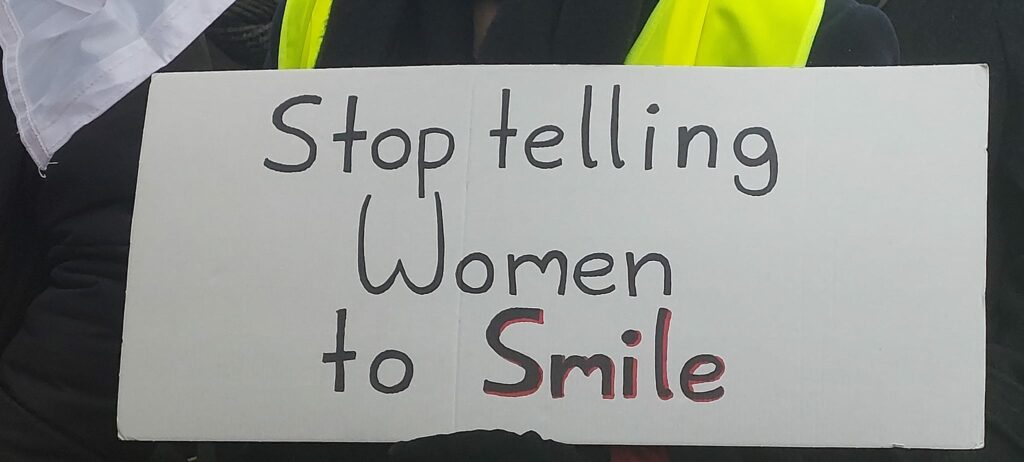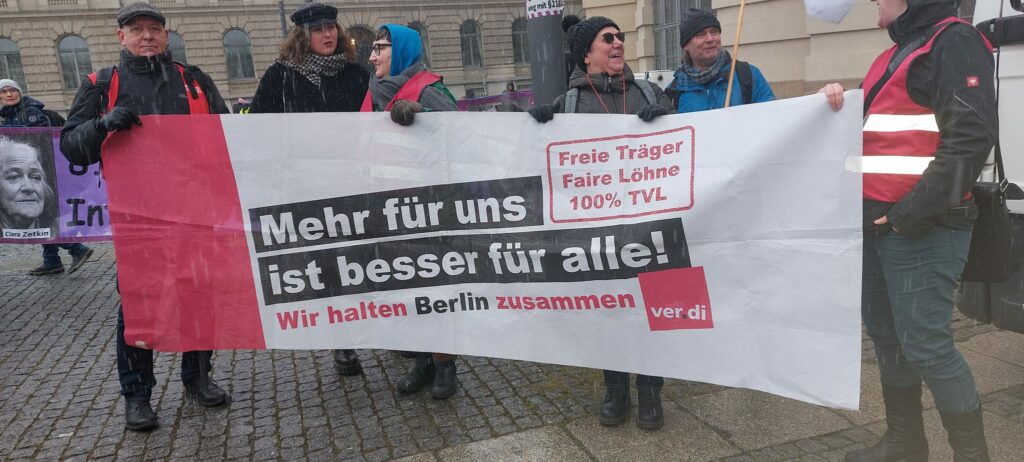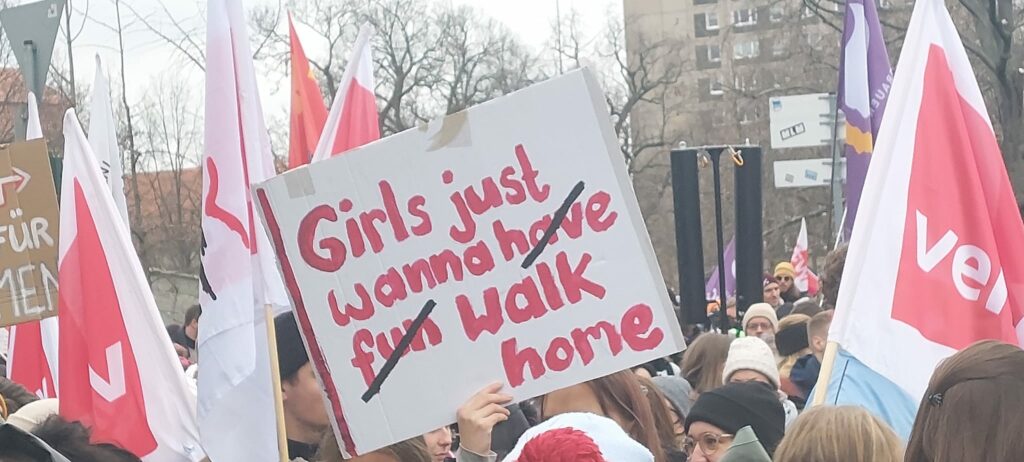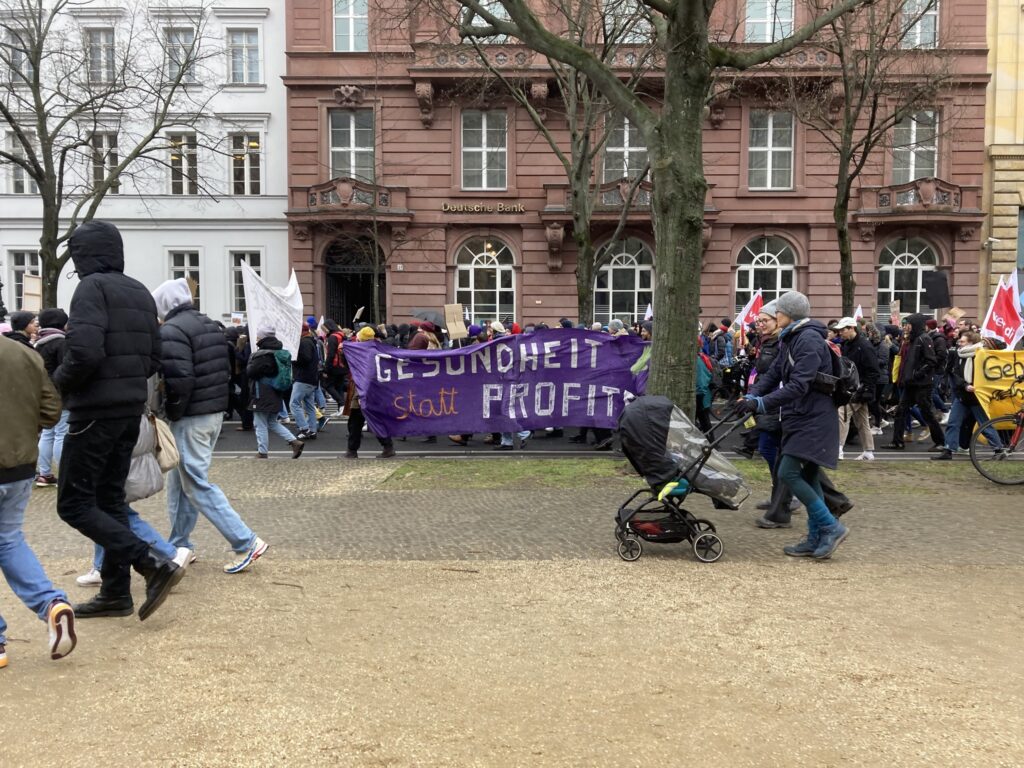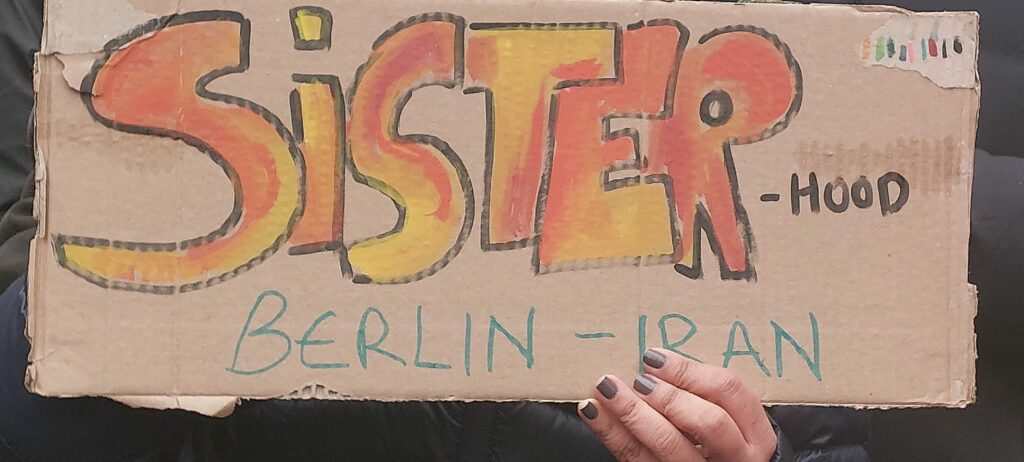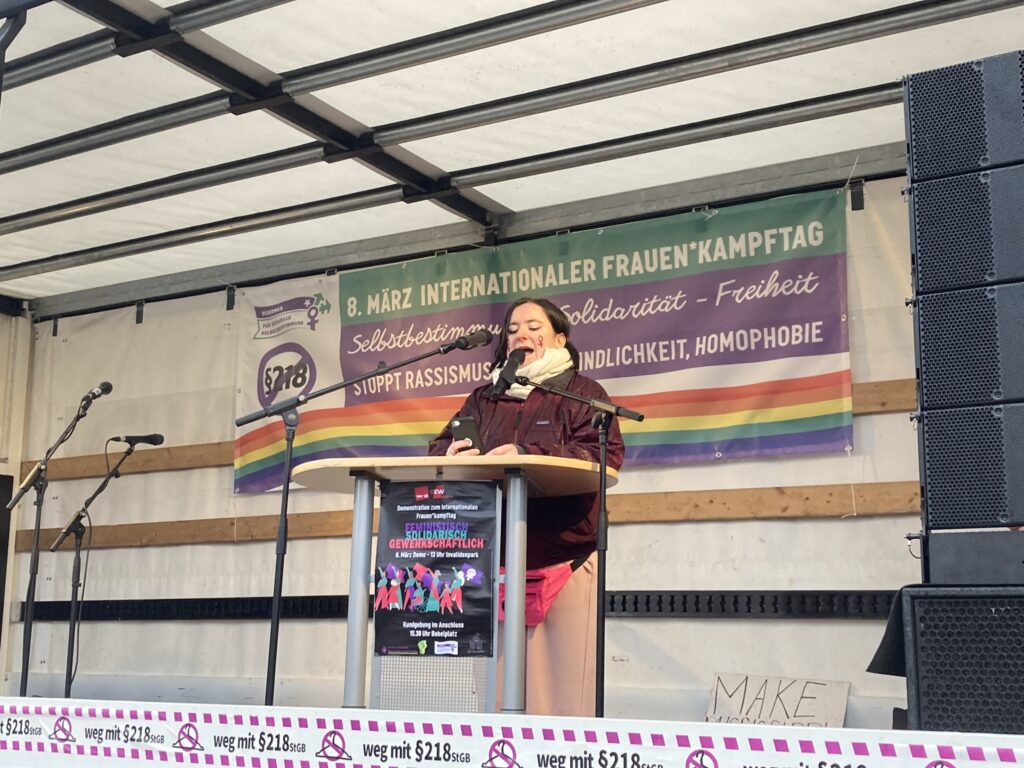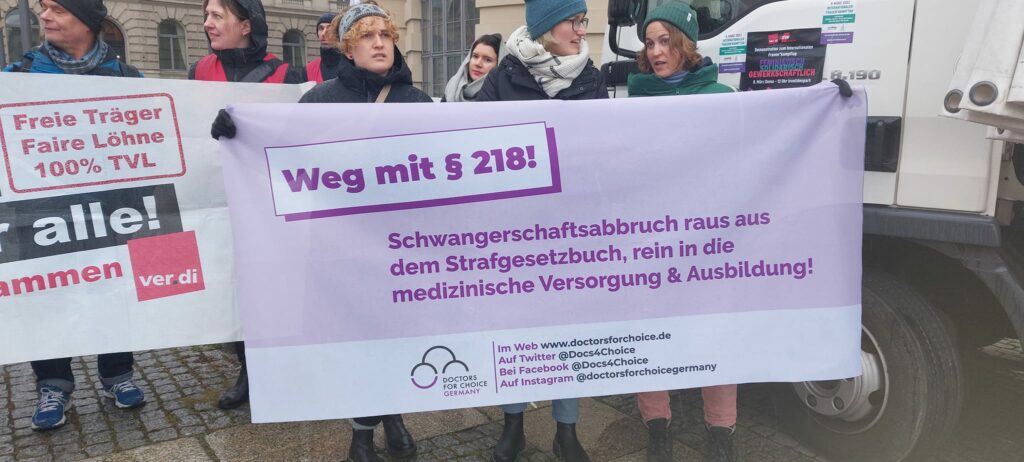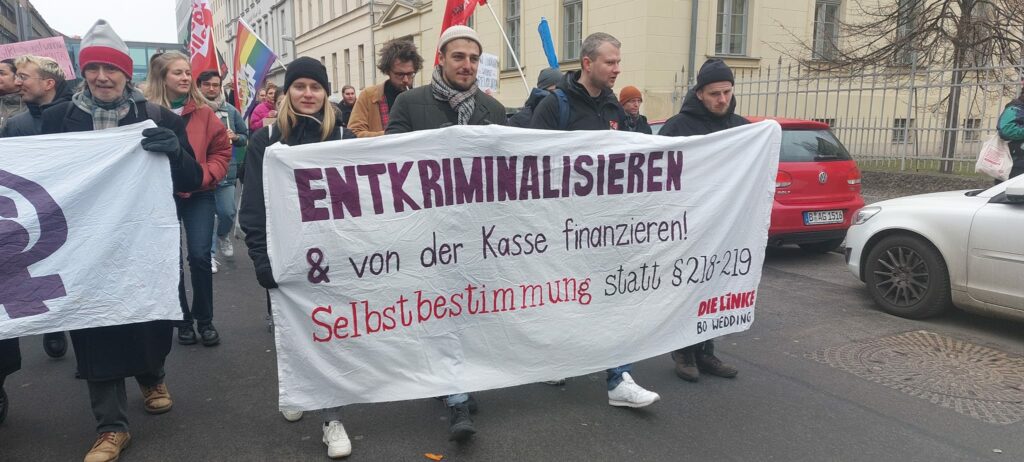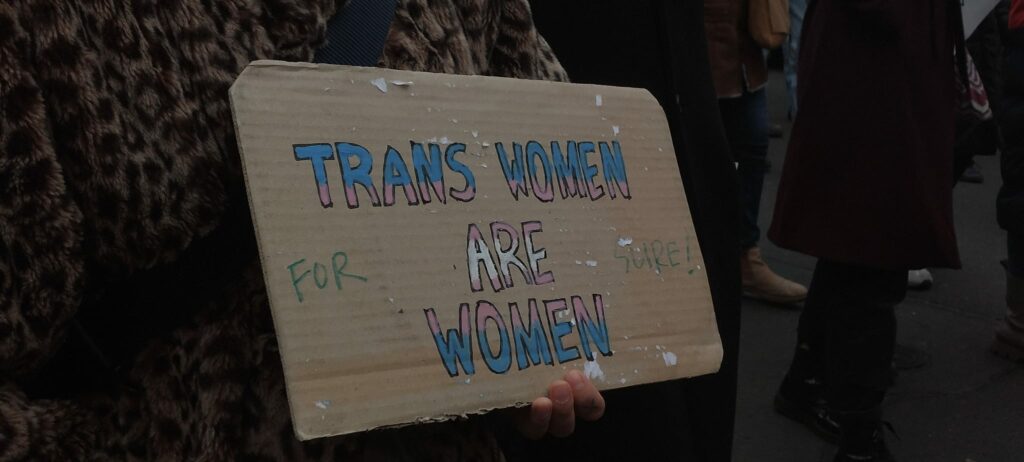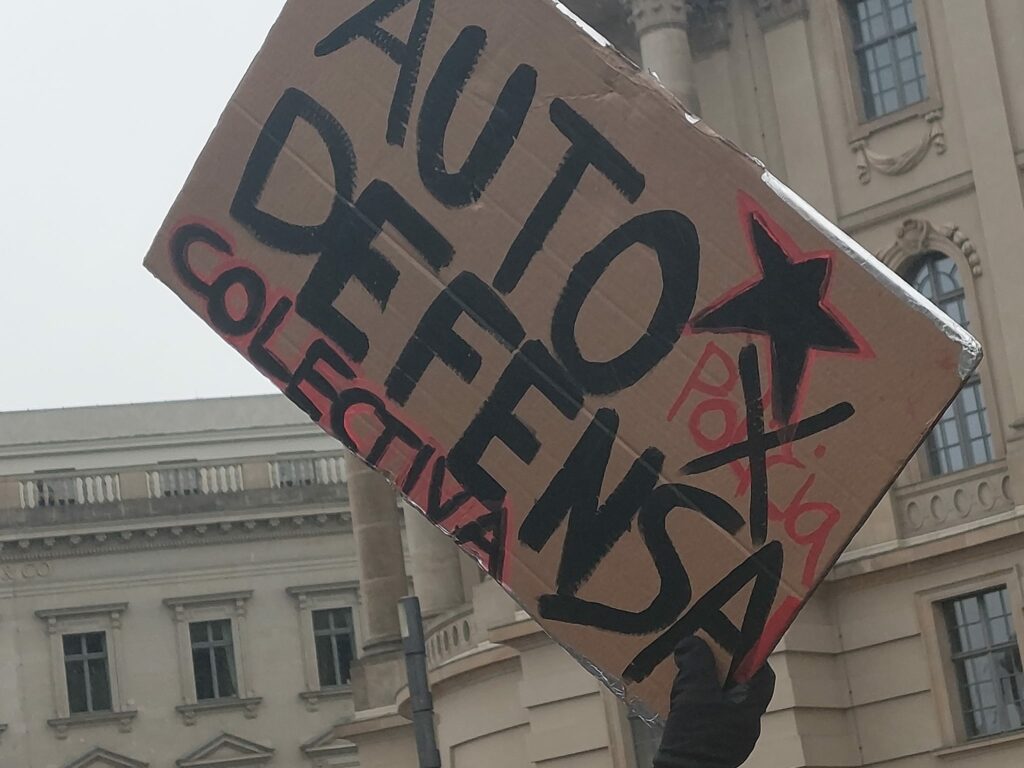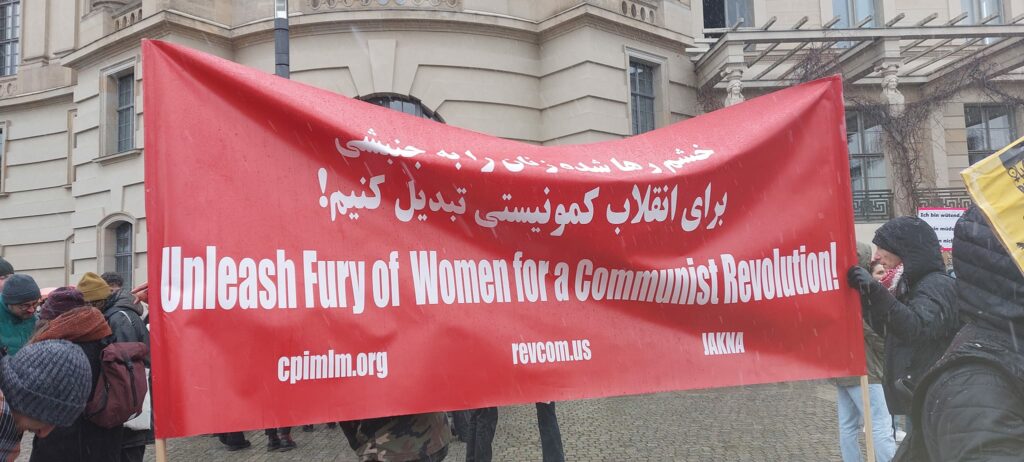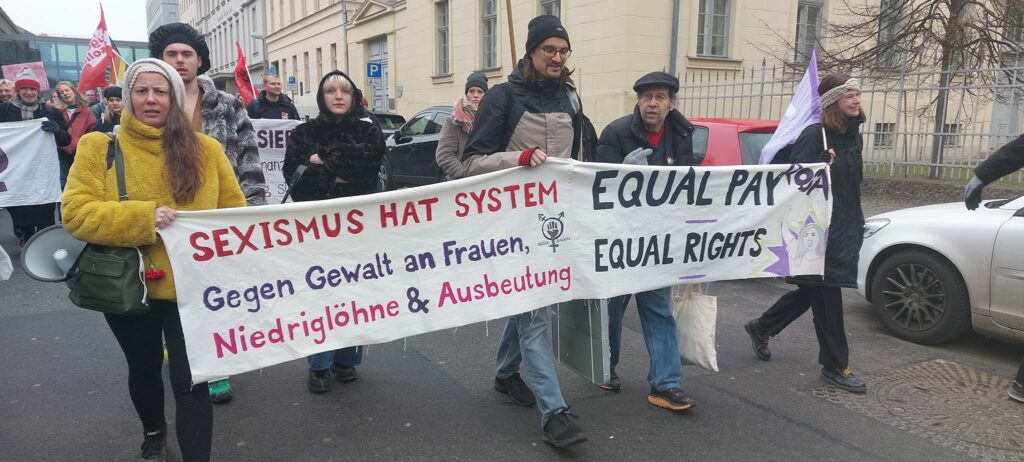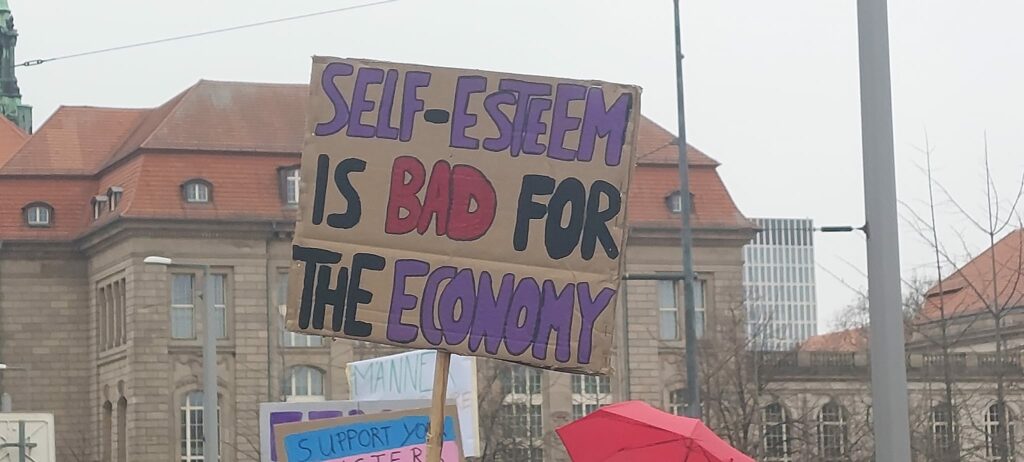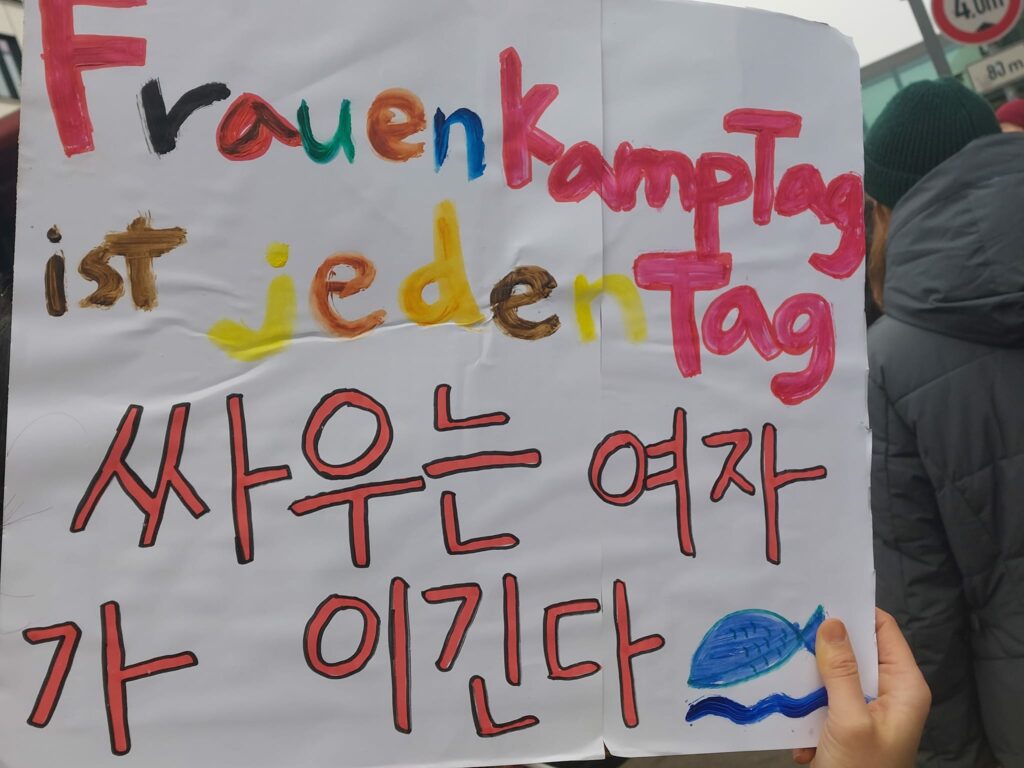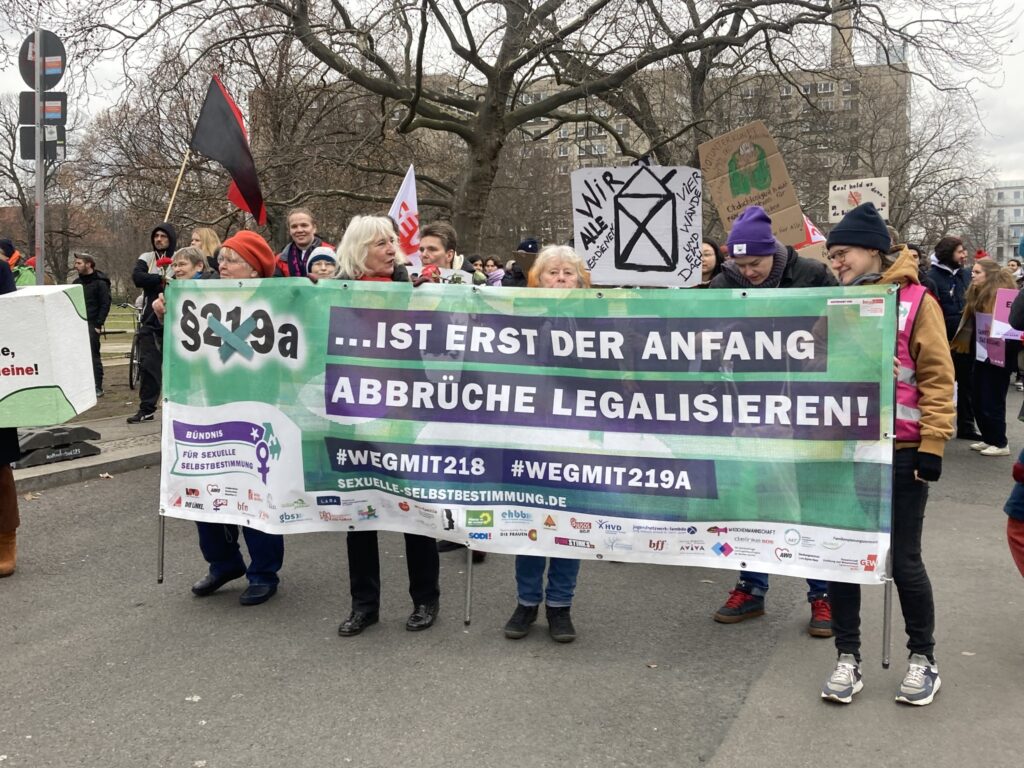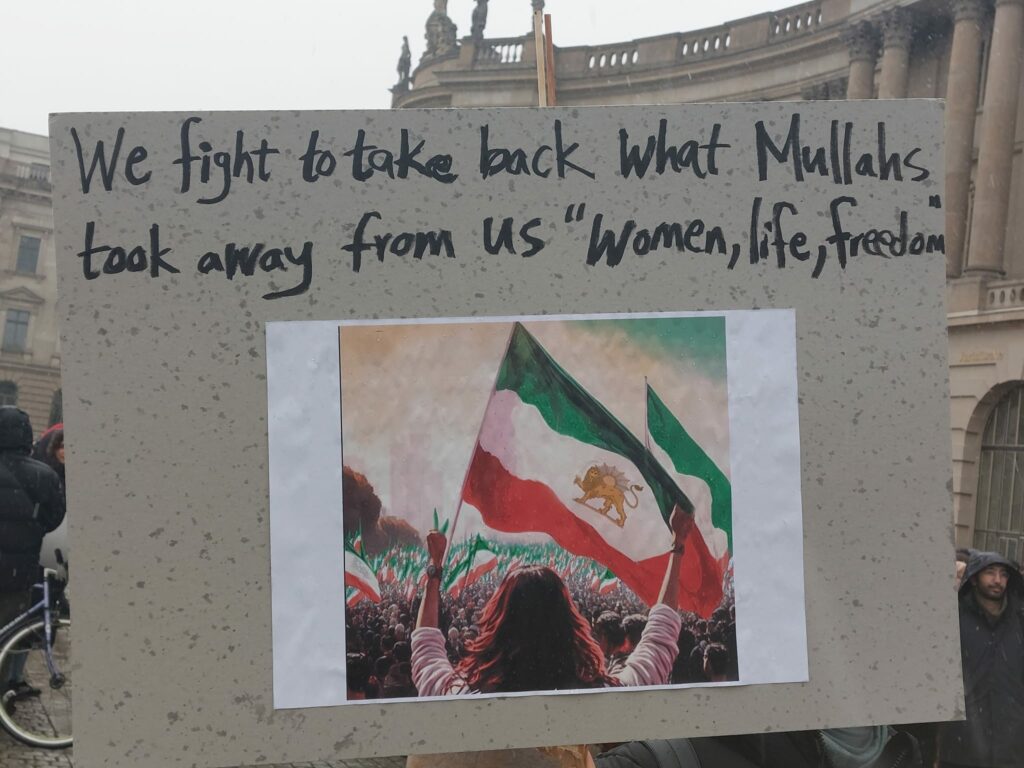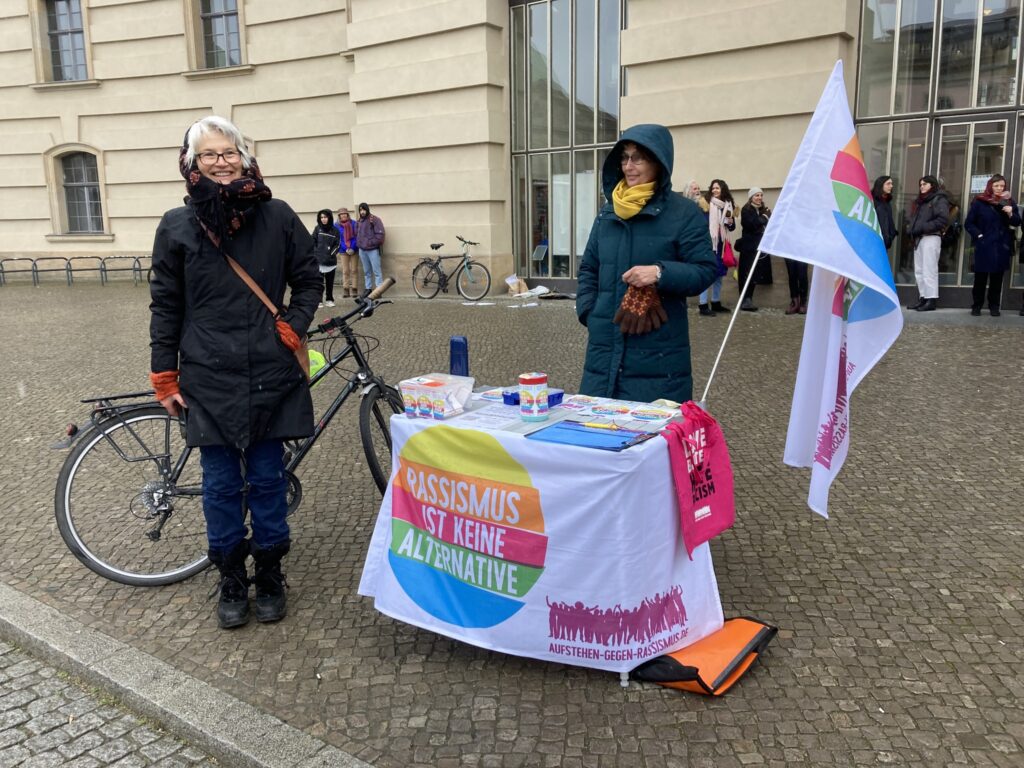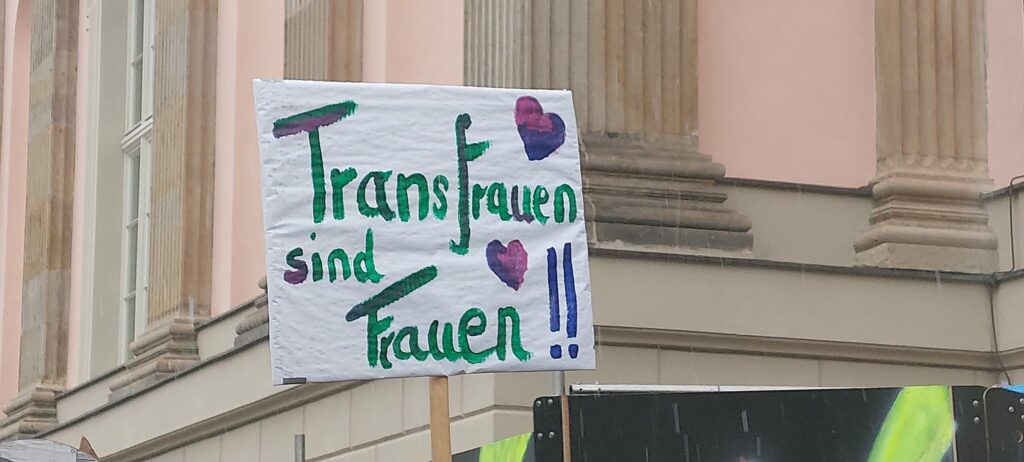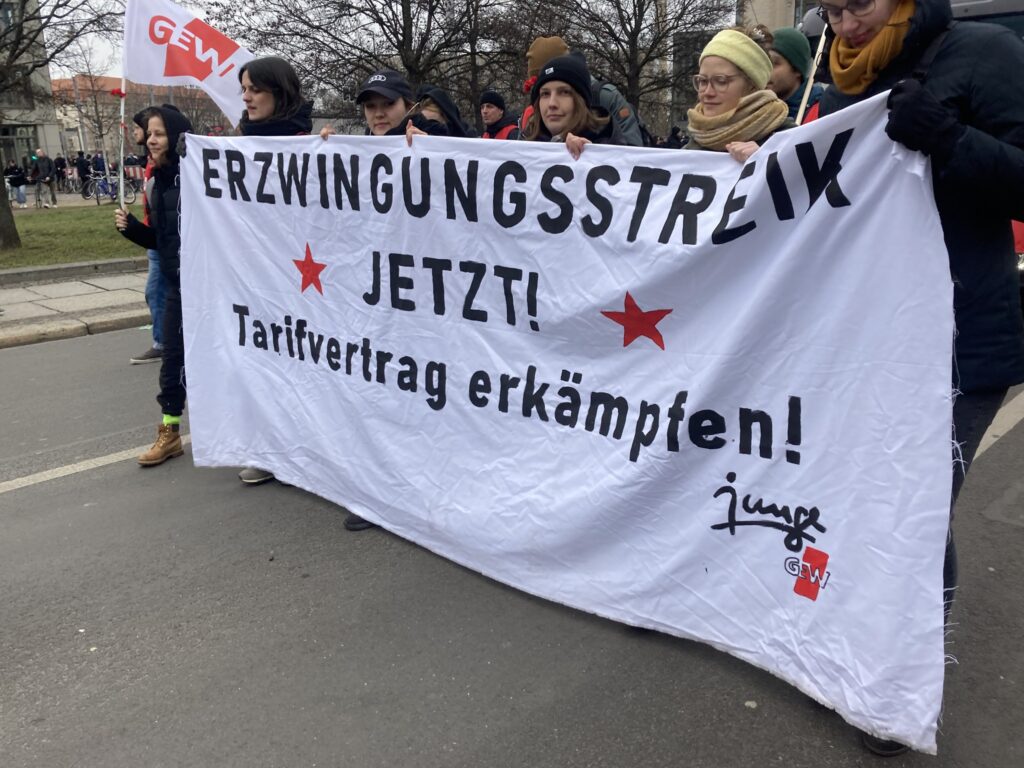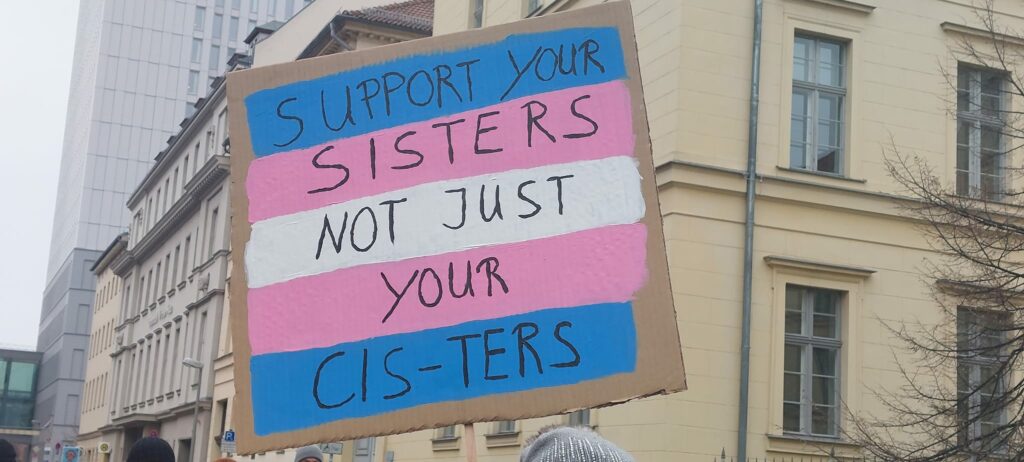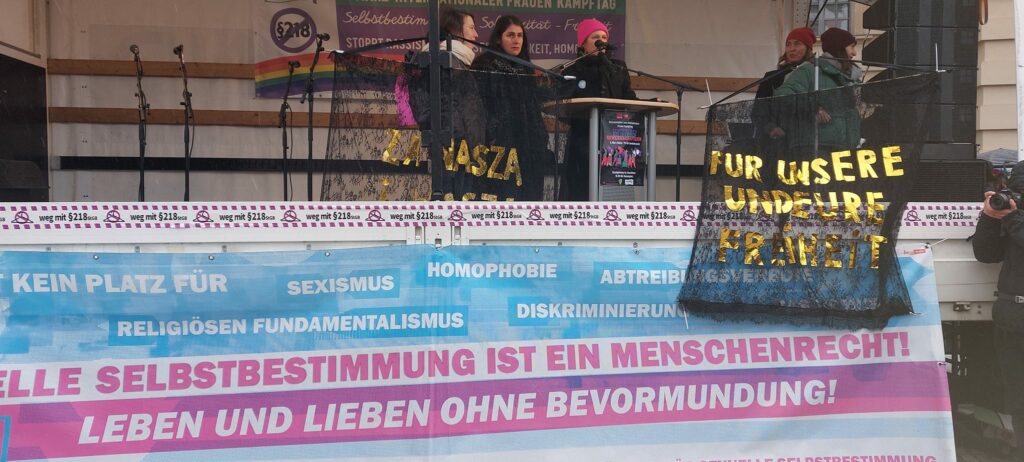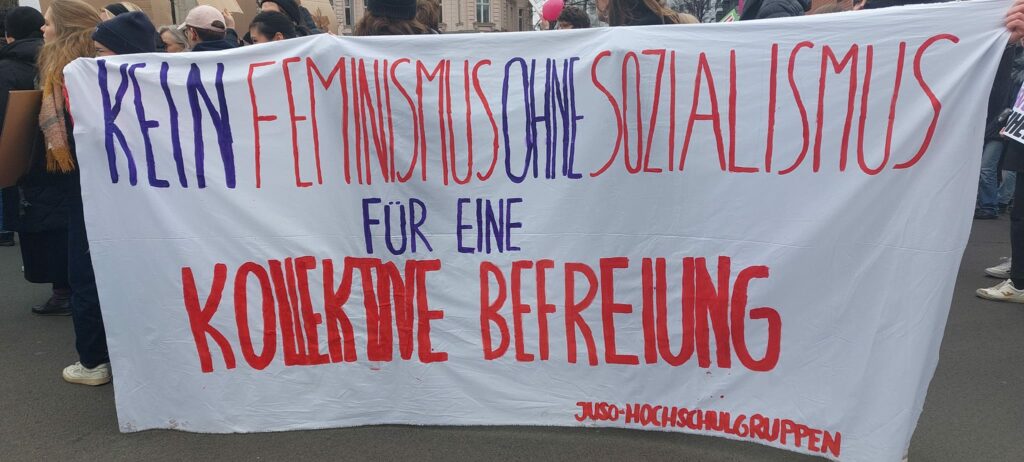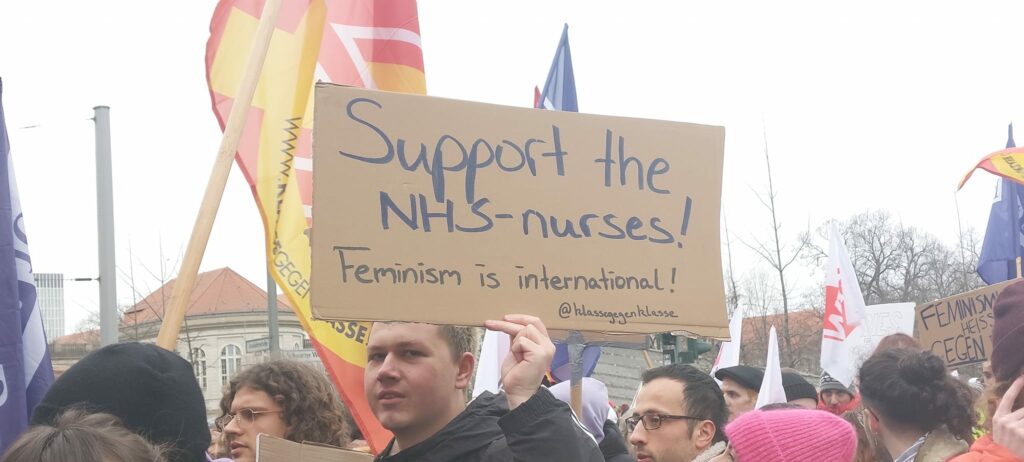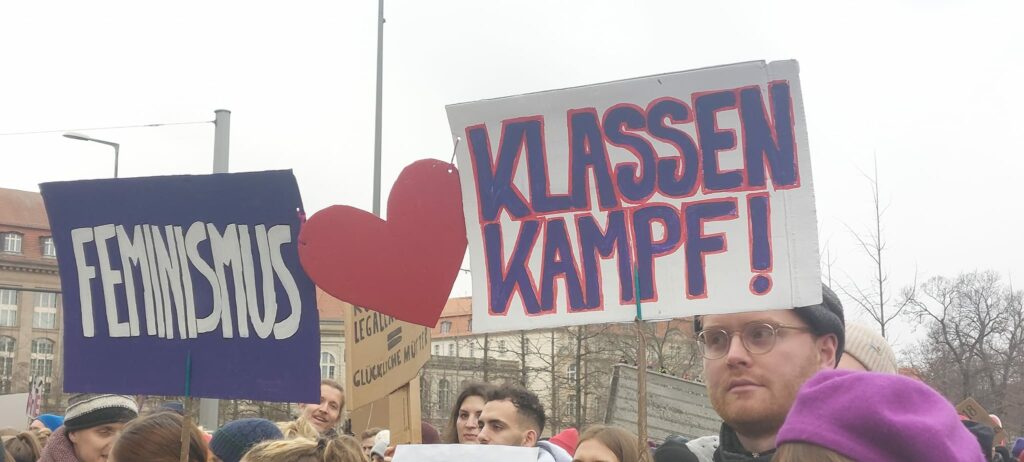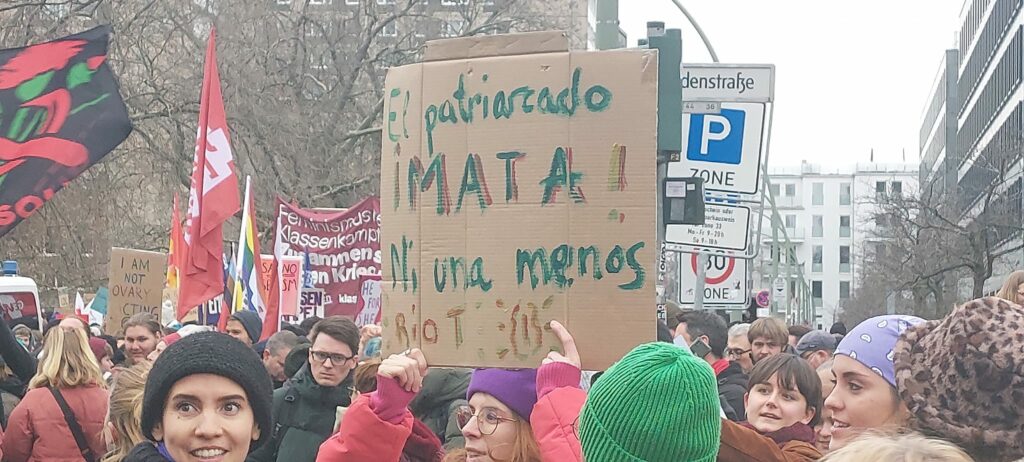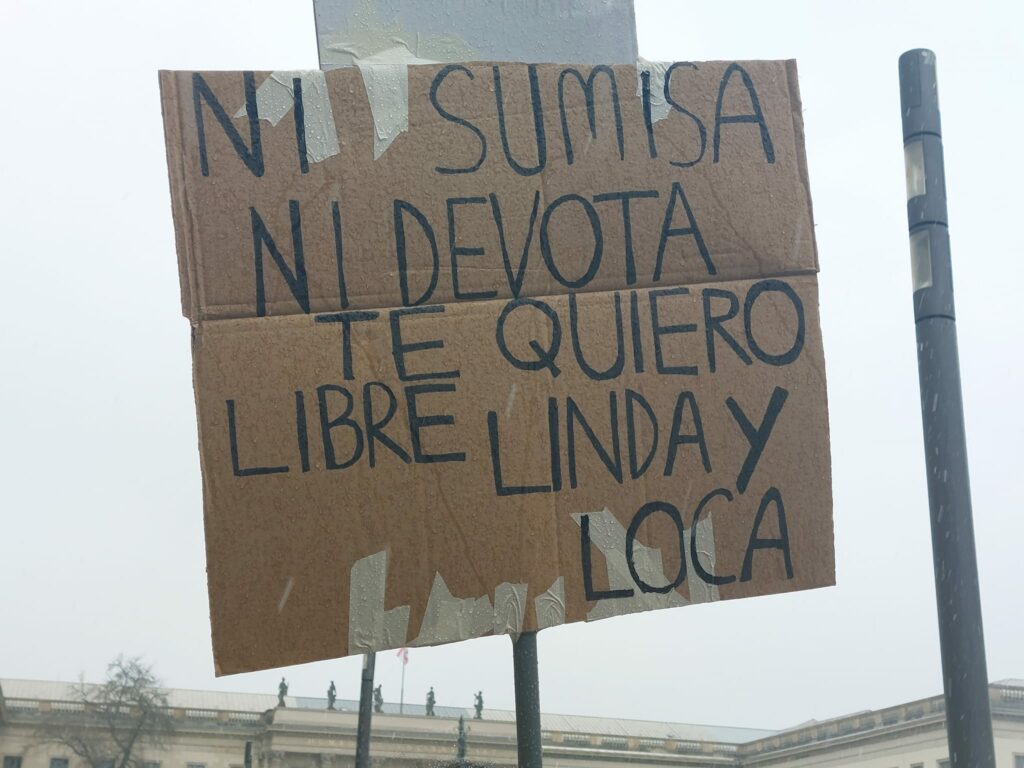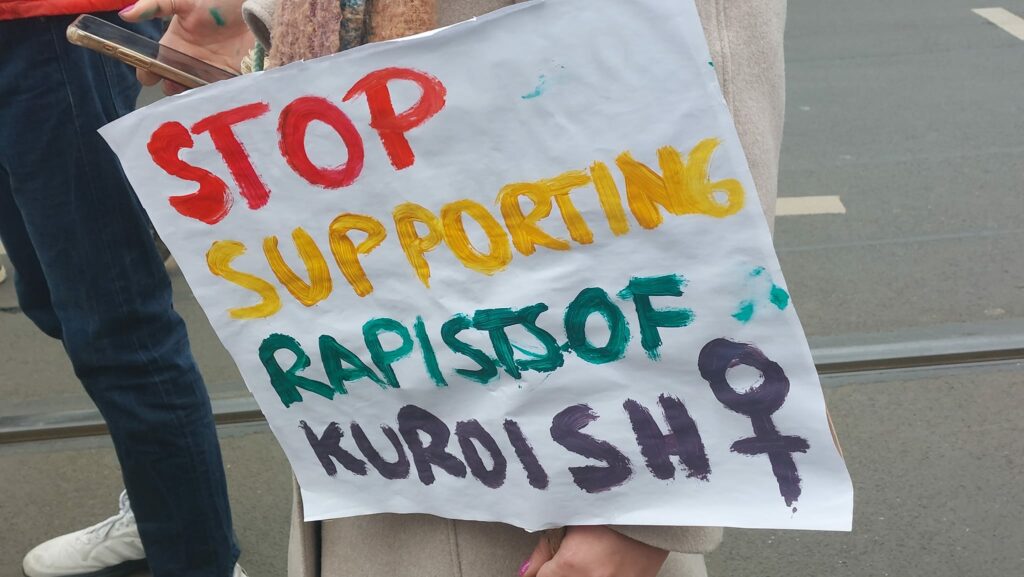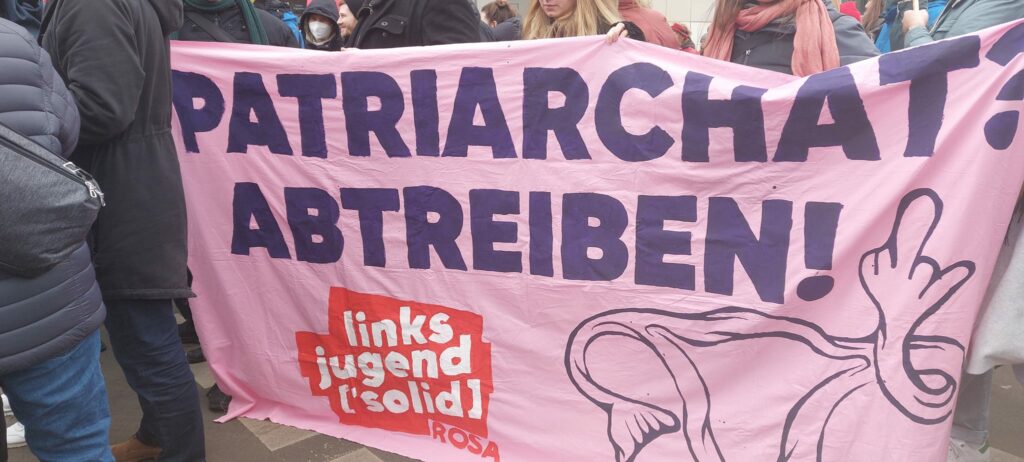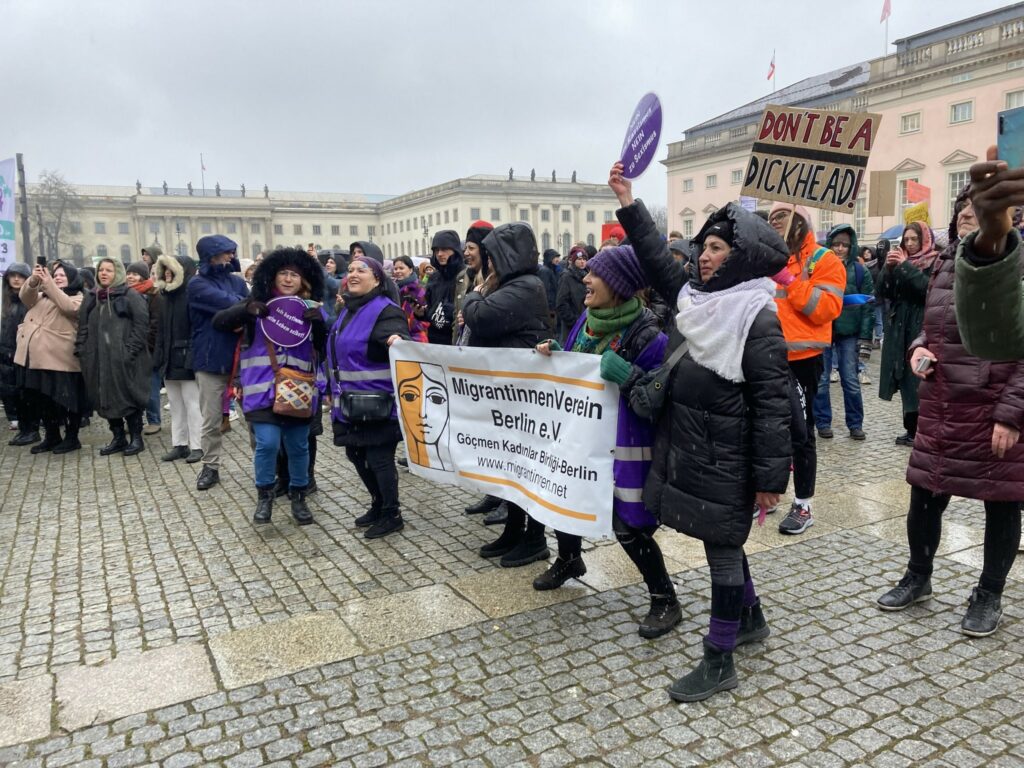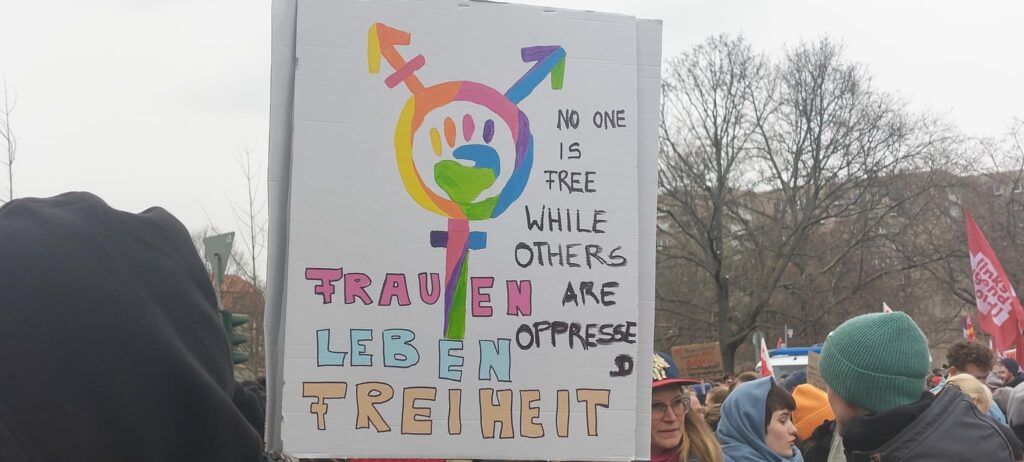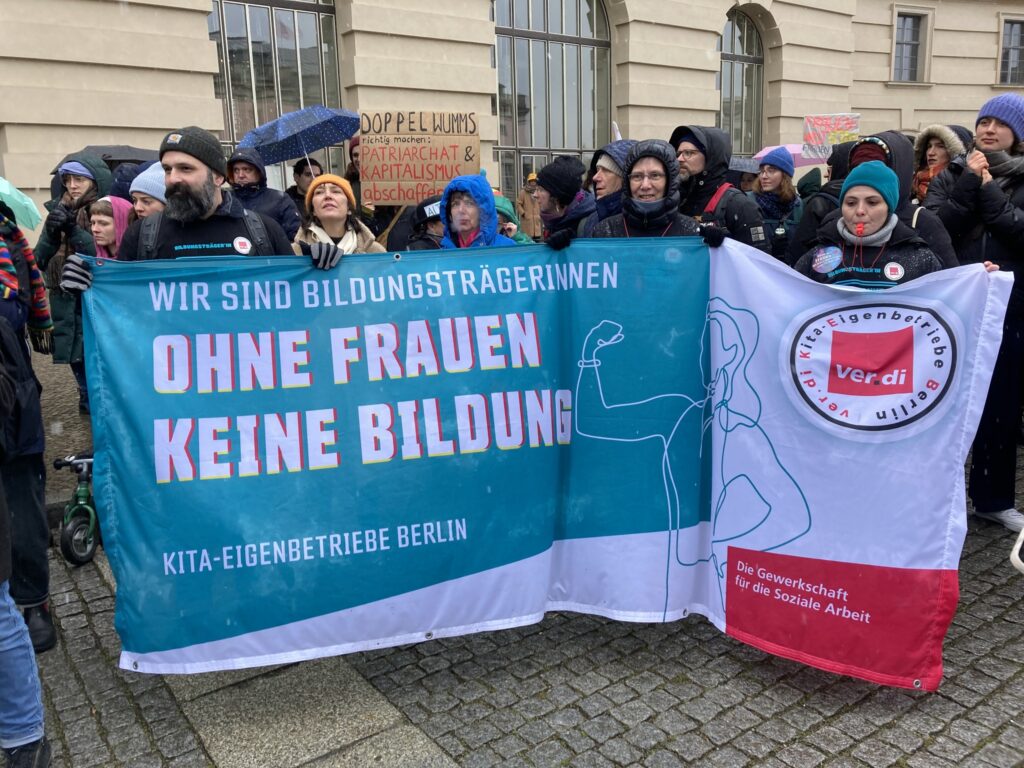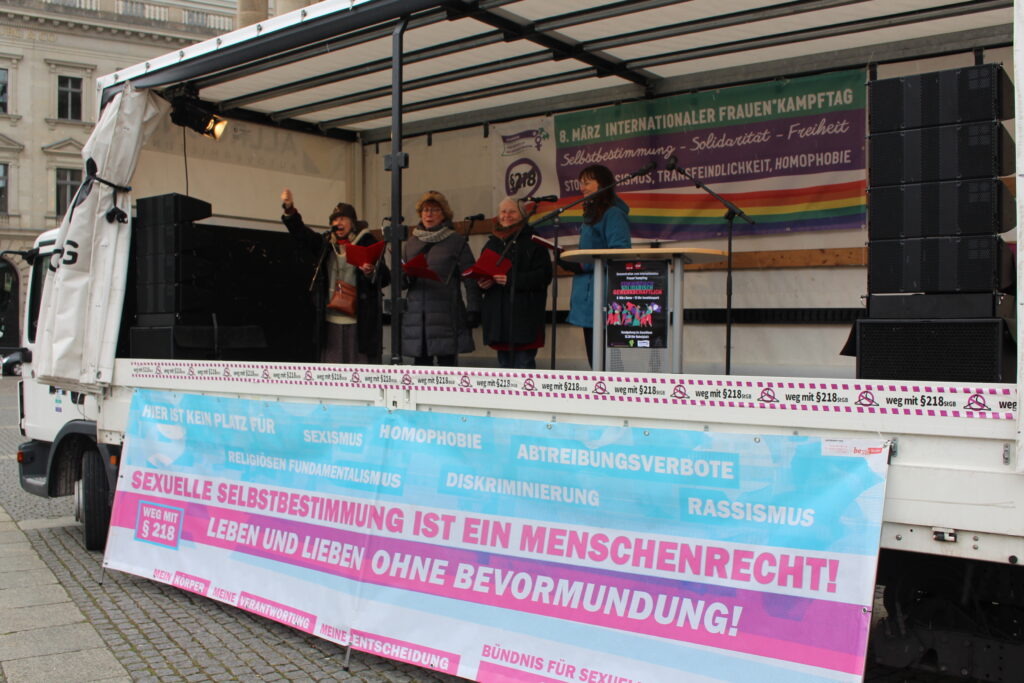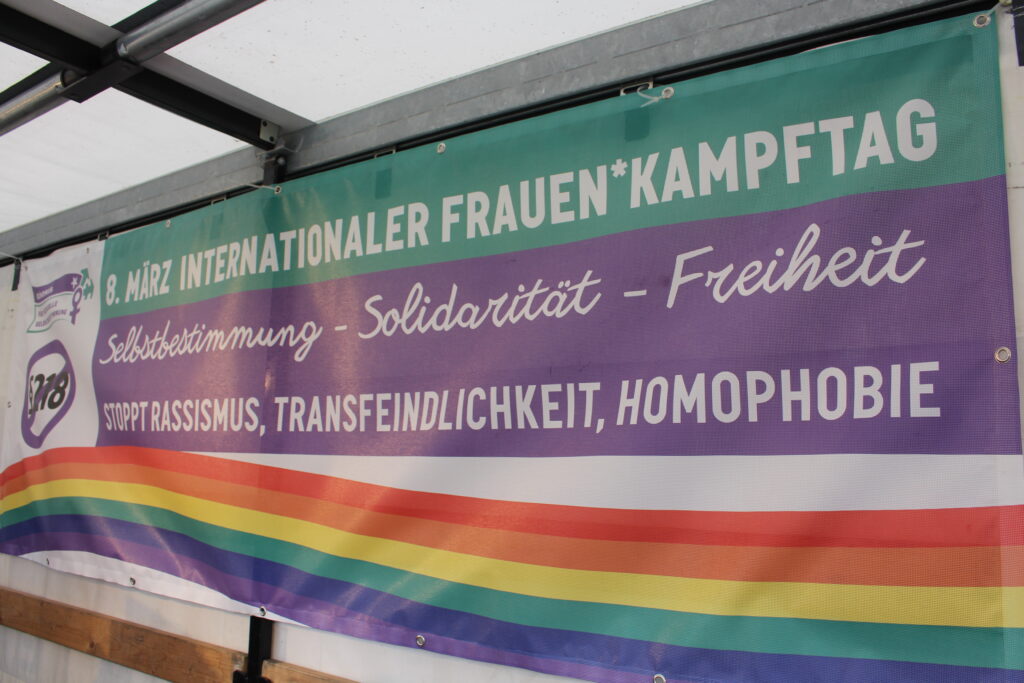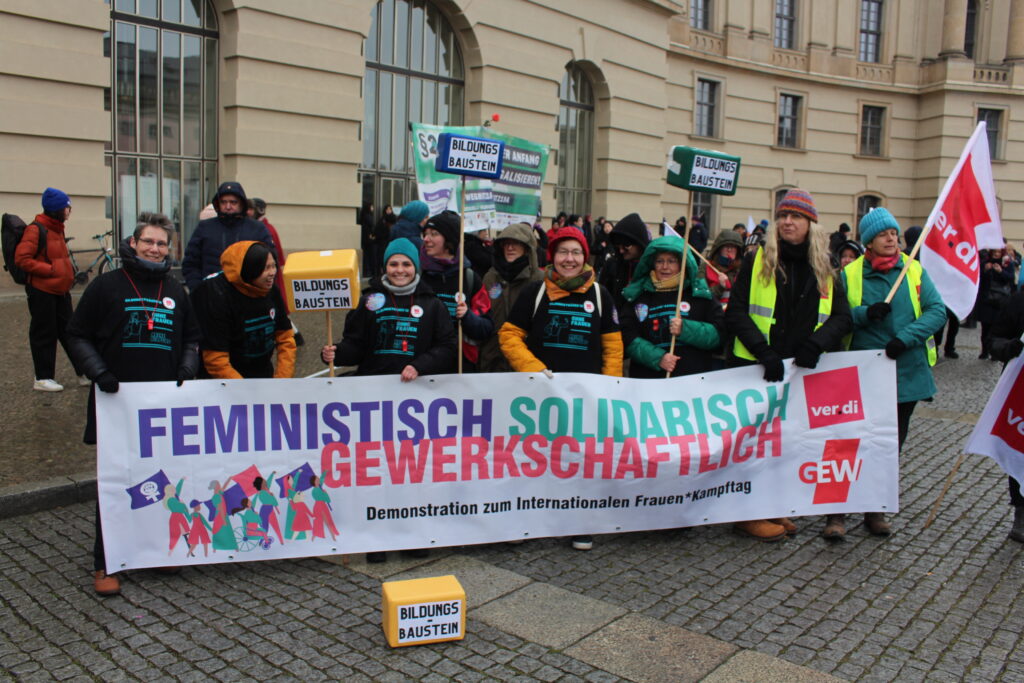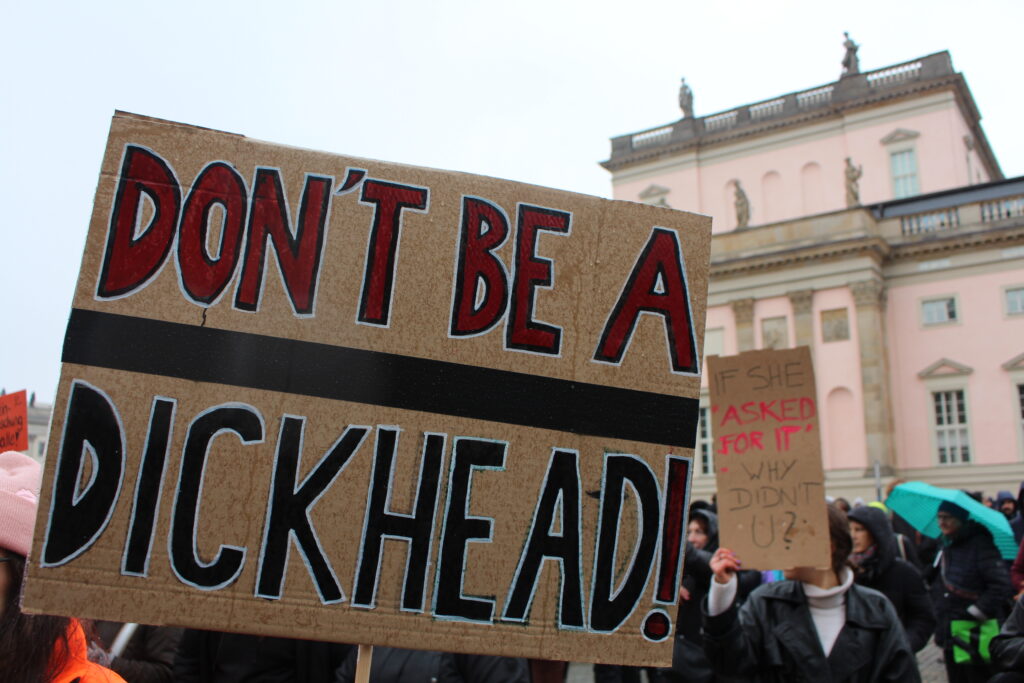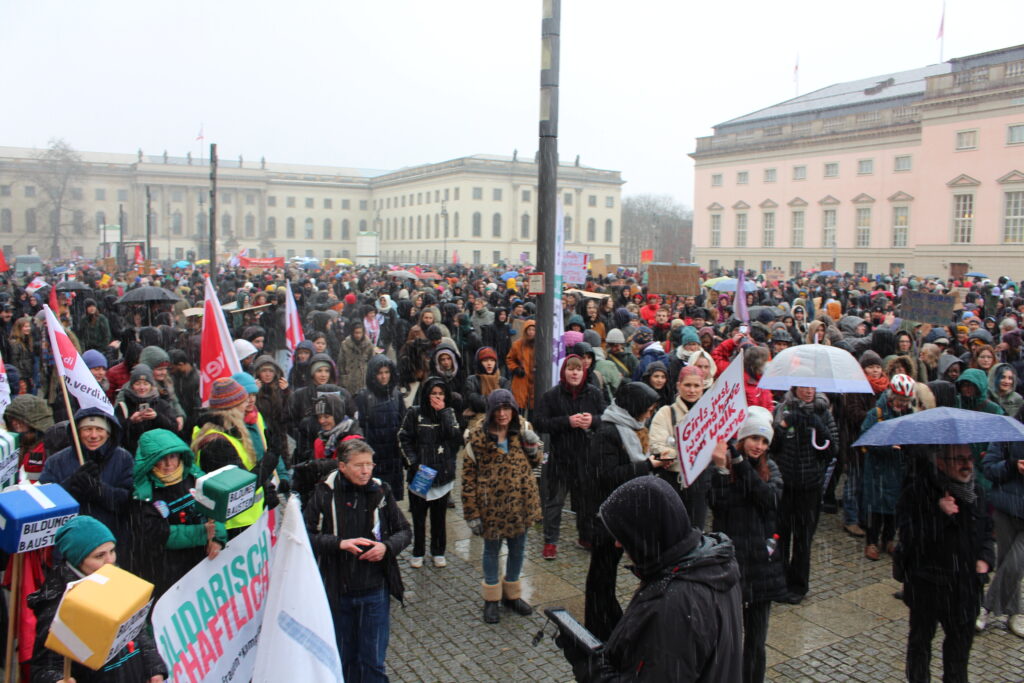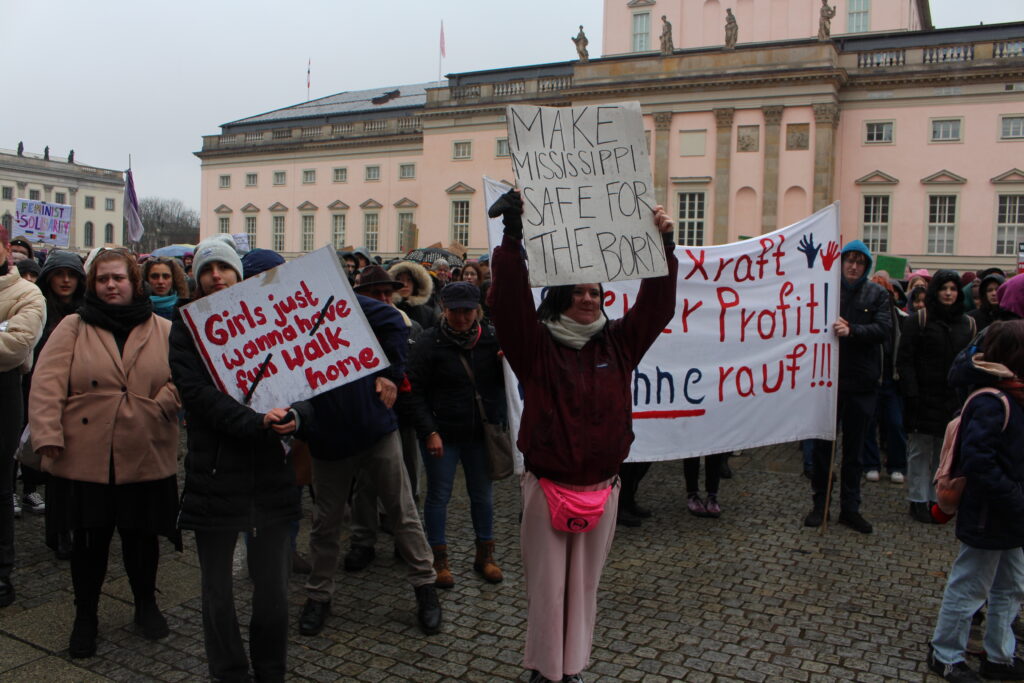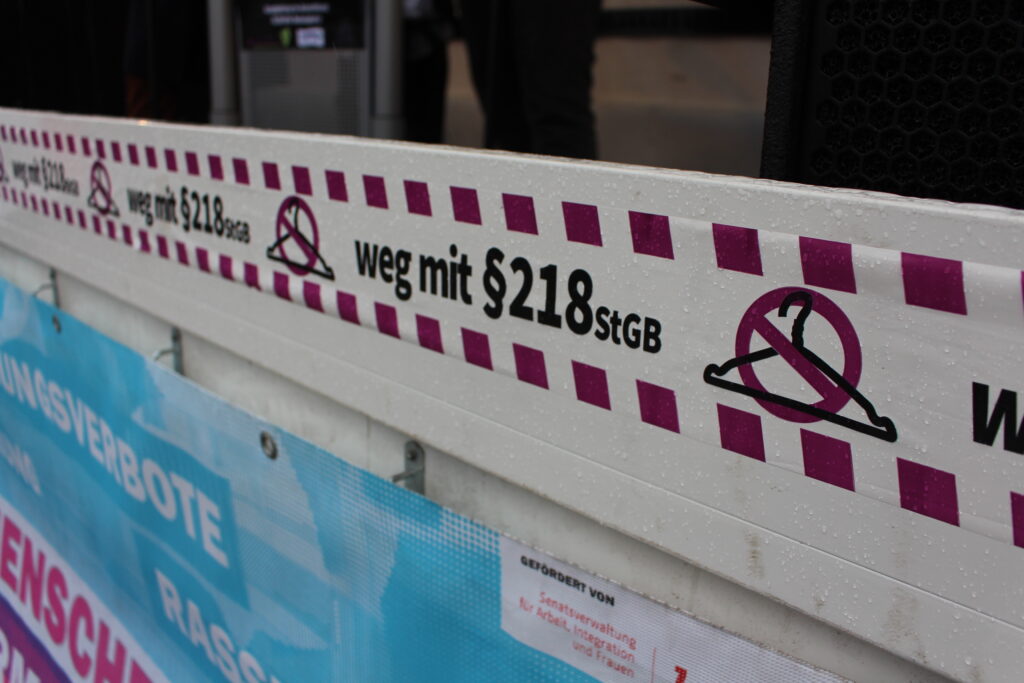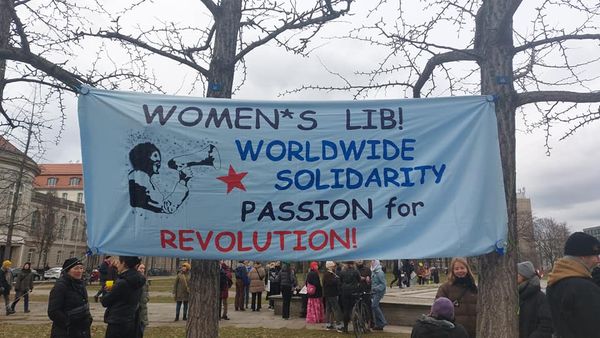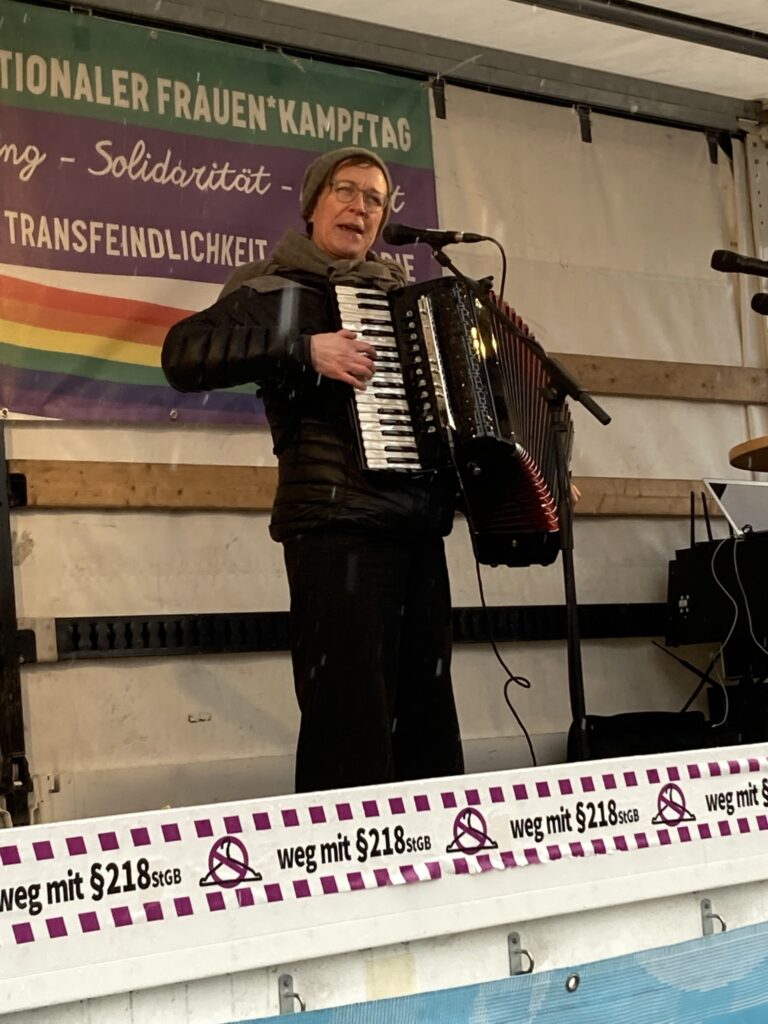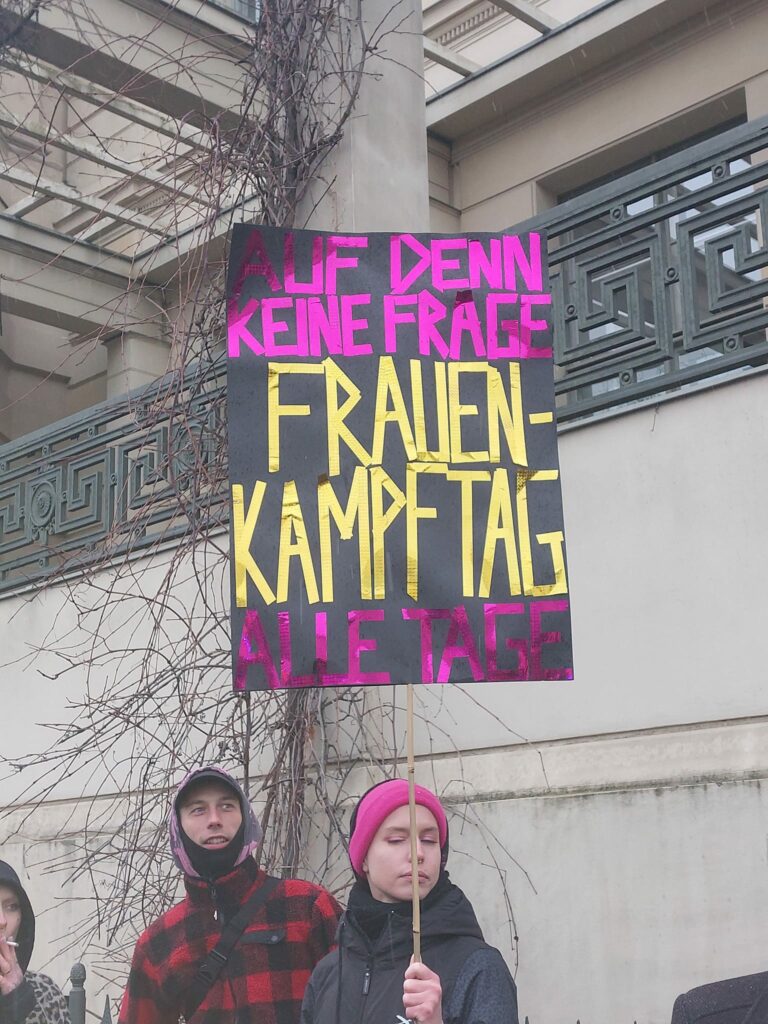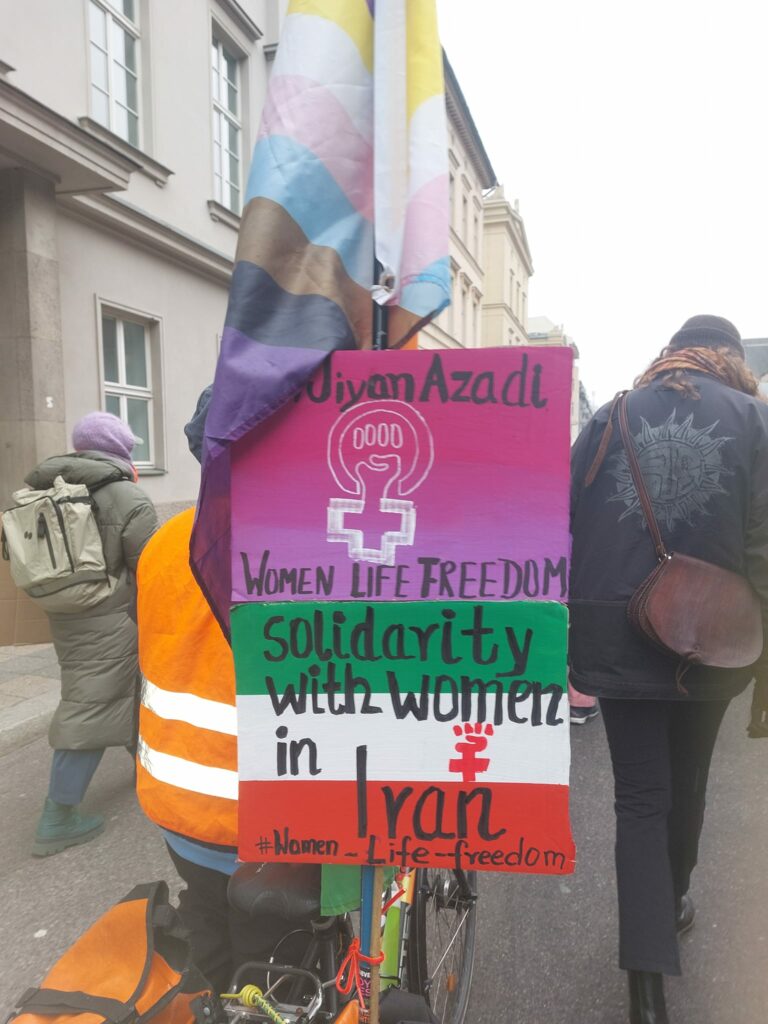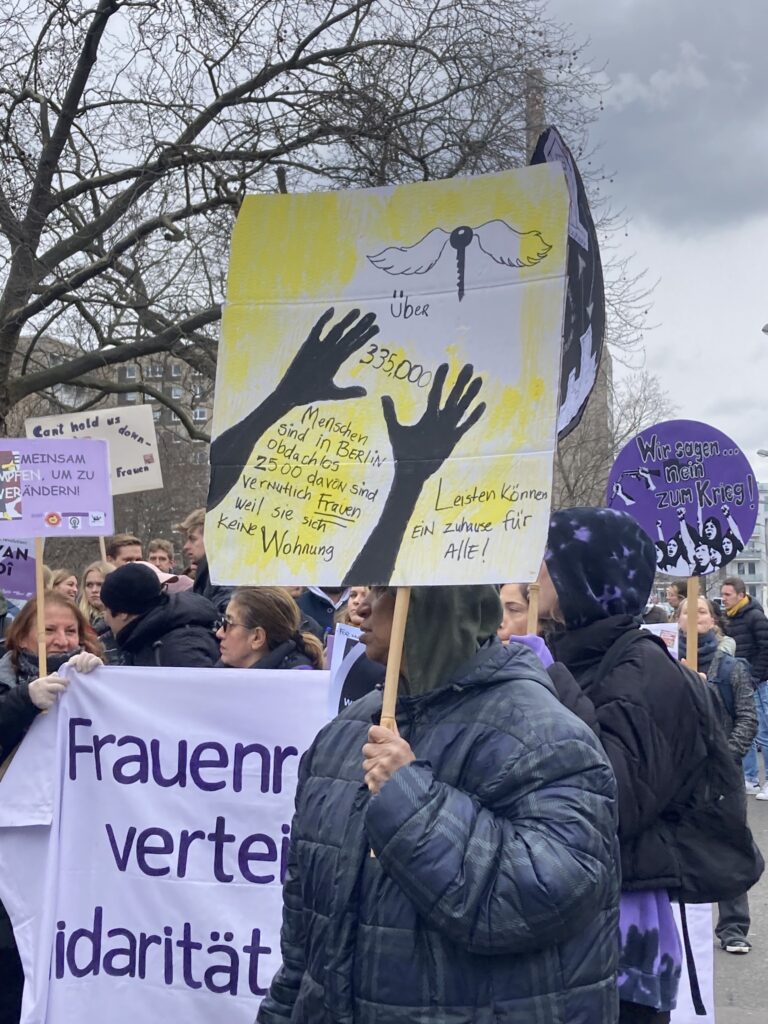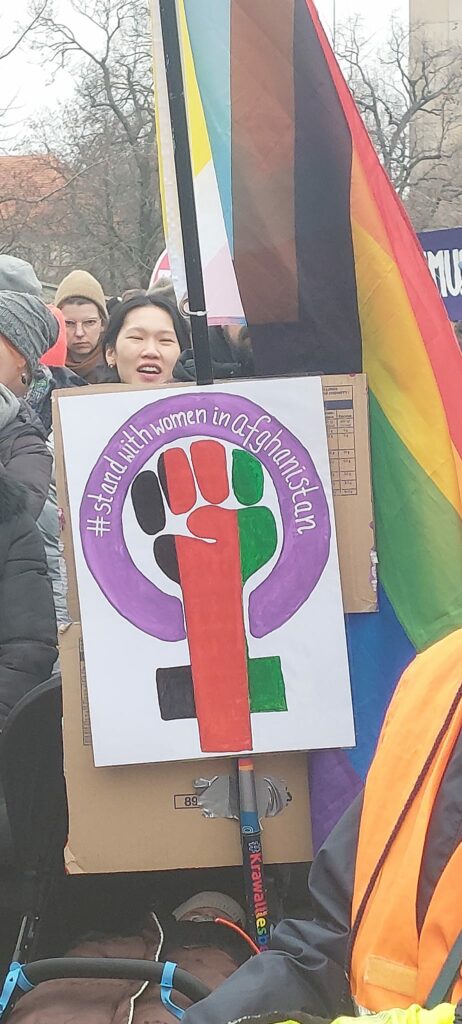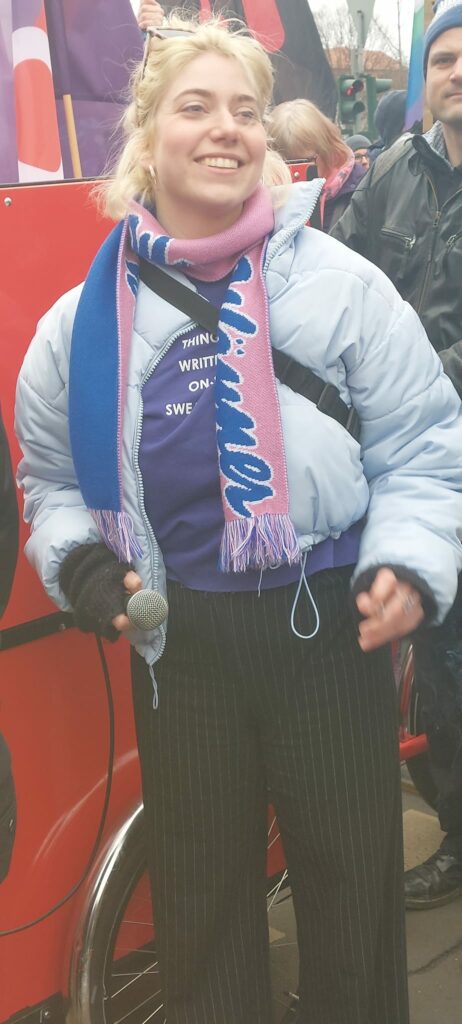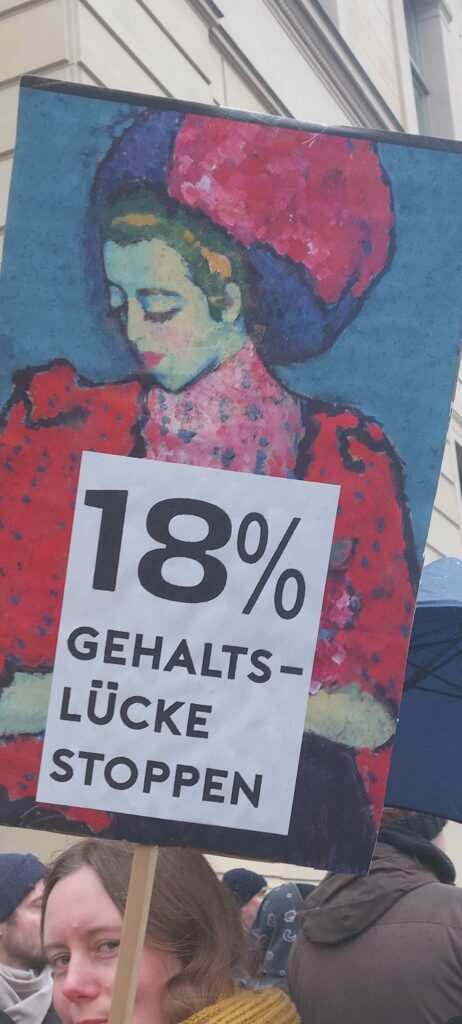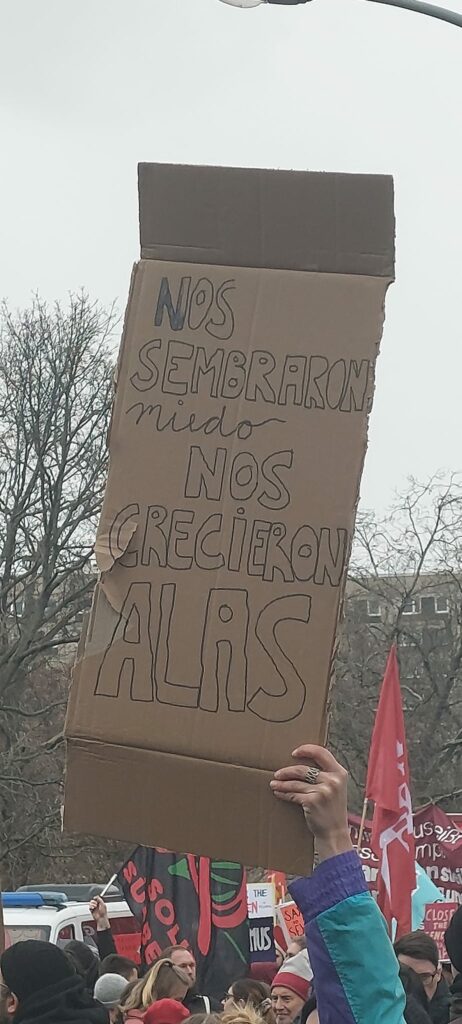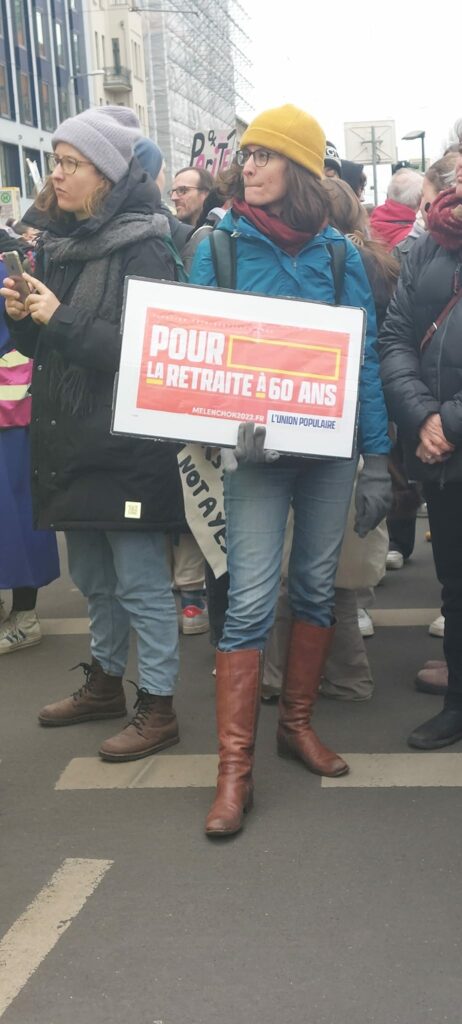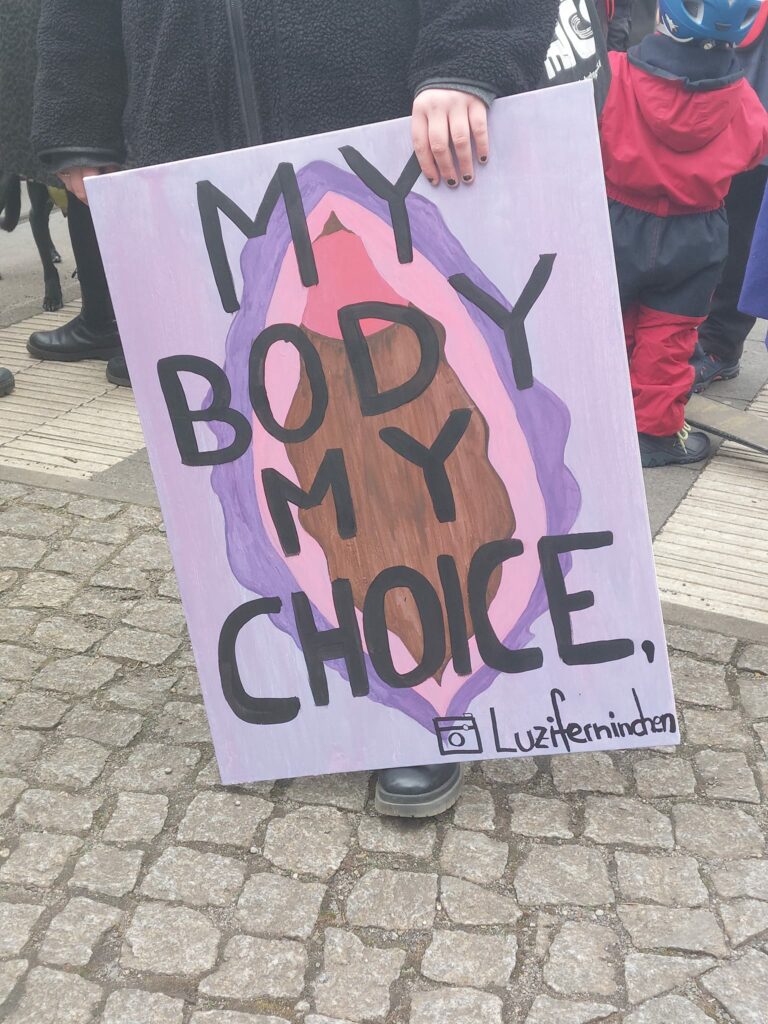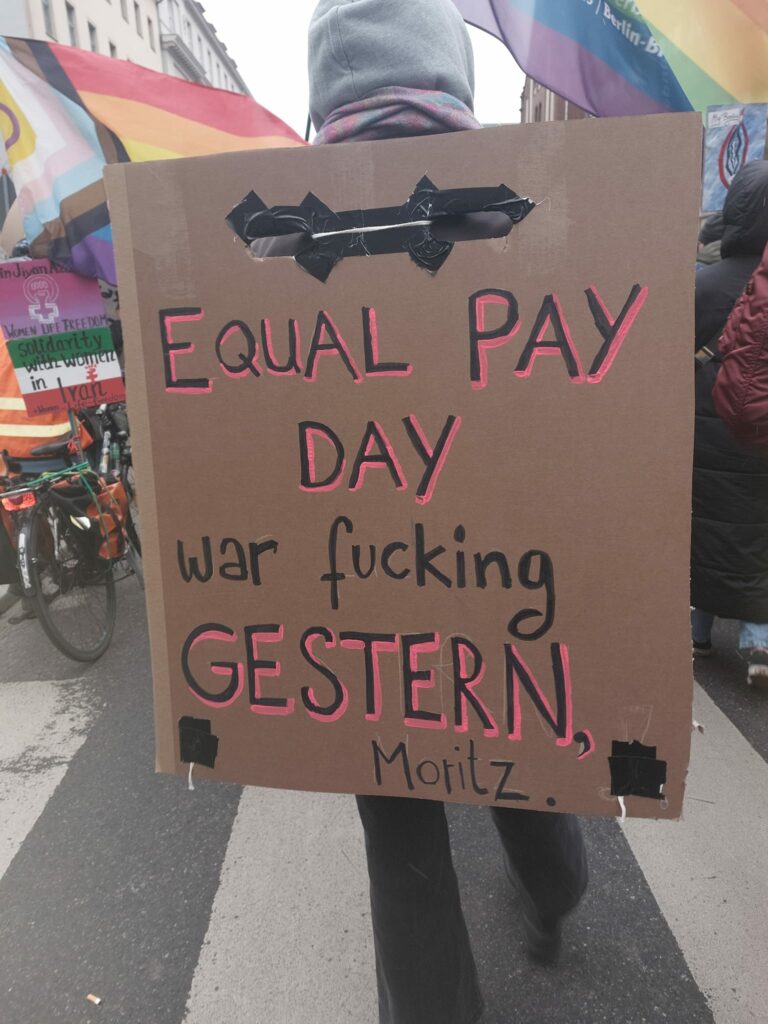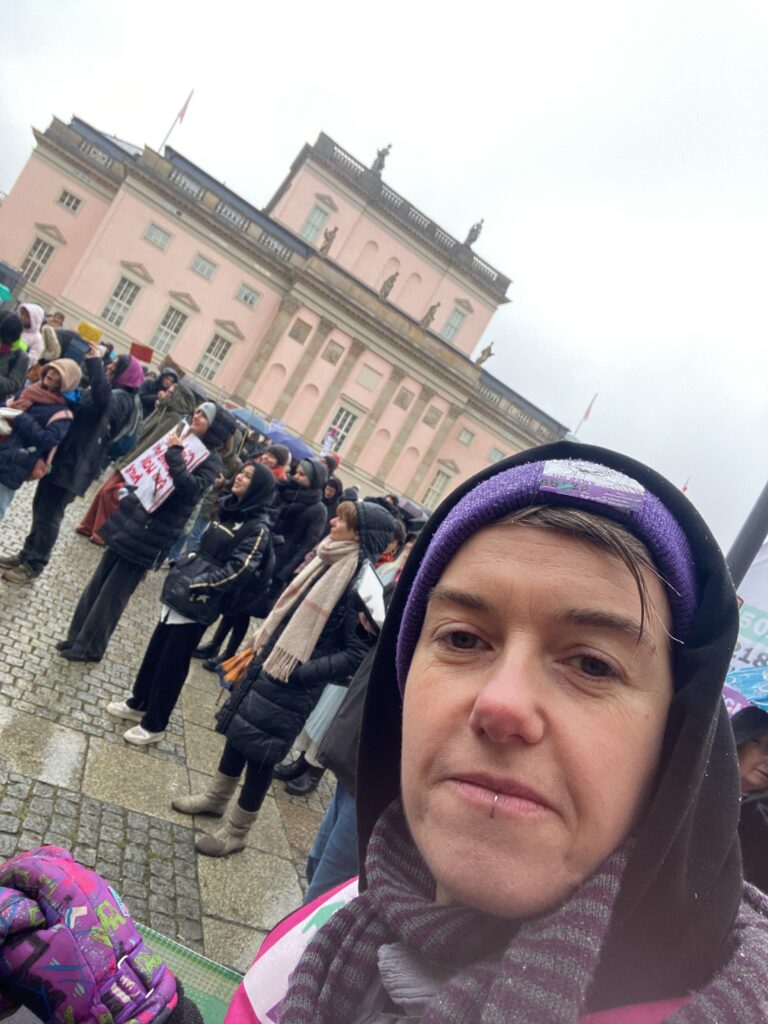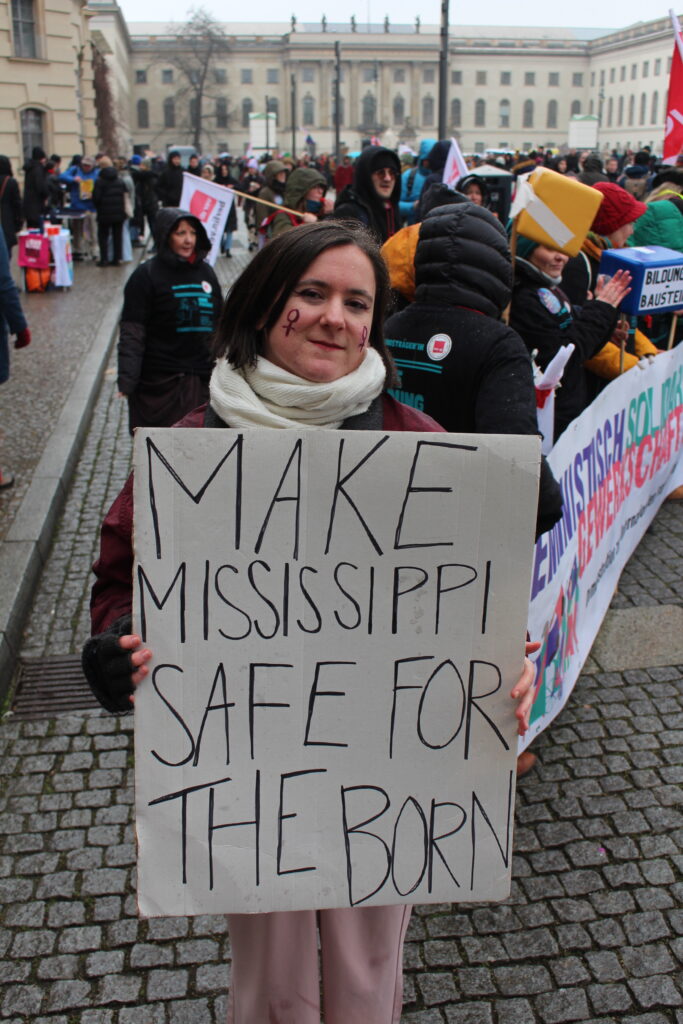Gary Lineker, the former England footballer, has been naughty. He has posted something on social media that was bad enough for the BBC to remove him from his position as presenter of their flagship football programme Match of the Day (MOTD).
What terrible thing did he post? Was it something racist? Nope. And not that it would matter, the BBC allowed racist posts by other presenters like this to slip by without much consequence. Was it inciting violence? No. The BBC allowed comments inciting violence from their presenters; odious right winger Jeremy Clarkson kept his job after saying on a BBC talk show that striking workers should be shot in front of their families. Did he trivialise domestic violence? No but presenter Fiona Bruce did on BBC flagship politics show Question Time earlier this week.
Well was it party political? No. The BBC has allowed many party political posts by their presenters, including one by Lineker himself in 2017 that said ‘Bin Corbyn’. Andrew Neil, while host of BBC Politics programmes including This Week and Daily Politics, was also the Chairman of The Spectator, a conservative publication that has in recent years carried articles such as “In praise of the Wehrmacht” and in support of Greek fascists Golden Dawn. Alan Sugar has made many vile anti-Corbyn tweets, including one depicting Corbyn next to Hitler, and others telling people not to vote for “the communist Jeremy Corbyn”.
This is all ok with the BBC. When viewers have complained , the BBC have issued letters informing people that as Mr Neil (and others) is freelance, he can say what he likes on his social media and in his non-BBC role. Not so for Mr Lineker, it would seem. Employers shouldn’t be able to police their workers’ personal social media use anyway, but policing it in such an obviously unfair and partisan way is particularly egregious.
The Crime
Gary Lineker’s crime was to tweet against a disgusting new government policy that attacks refugees who arrive on ‘small boats’. The “Illegal Migration Bill” is this deeply unpopular Tory government’s attempt to gain some support from the British public, whom they think of as ignorant racists. The problems faced by British people are all to be blamed on a few poor foreign people coming here on ‘small boats’. Small boats bogeymen have been in the right wing press a lot recently, promoting this narrative.
You can read more about the Illegal Migration Bill here, it has already been condemned as incompatible with human rights law and the UK’s commitments under international treaties, including the European Convention on Human Rights (ECHR). The United Nations High Commissioner for Refugees (UNHCR) expressed its ‘profound concern’ over the Bill as it would clearly breach the Refugee Convention.
This is what Lineker actually tweeted:
“There is no huge influx. We take far fewer refugees than other major European countries. This is just an immeasurably cruel policy directed at the most vulnerable people in language that is not dissimilar to that used by Germany in the 30s…”
At first, the response from the BBC was minimal. A ‘journalist’ for the Sun tabloid ‘newspaper’ tweeted that a senior source from the BBC said that Lineker would not face any disciplinary action. This turned out to be untrue. The BBC released a statement saying that Lineker would “step back from Match of the Day”. A woolly phrase implying that the decision was mutual. Lineker quickly made it clear that he had been removed from hosting the show. The BBC had wanted him to apologise and he had refused.
Solidarity
The first show of solidarity came from Lineker’s fellow MOTD presenter Ian Wright. Wright said he would not be appearing without Lineker. The other pundit due to appear on the show, Alan Shearer, then also declined to take part. This show of solidarity spread amongst BBC sports presenters (all former professionals), with big names such as Alex Scott, Micah Richards, Mark Chapman and Jermaine Jenas also confirming that they would not take part.
The commentators followed suit, saying that they would not provide any commentary for MOTD. The Professional Footballers Association released a statement confirming that their members would be supported if they refused to give interviews to the BBC, as many premiership football players wanted to show their solidarity to Lineker.
Following this online in real time was exciting; we were watching a wildcat strike develop amongst sports presenters and others involved in sports programming. Production staff were reported to be supportive of Lineker but wary of taking action without legal protection. The BECTU media union issued a statement condemning Lineker’s removal and accusing the BBC of bowing to political pressure from government ministers.
The solidarity spread to other BBC sports programmes. Alex Scott refused to present Football Focus, as did her proposed replacement Kelly Somers. Jason Mohammad refused to present Final Score. These programmes did not go ahead. There were no scab presenters to be found. There was no football coverage on BBC Radio 5 Live this Saturday and the usual two-hour long Premier League show on Sunday did not go ahead either.
Match of the Day went ahead on Saturday night without a presenter, pundits, commentary or interviews from players or managers. It was a flimsy 20 minute compilation of highlights, instead of its usual 80 minutes of highlights with commentary and analysis. The BBC also had no presenters for the Women’s Super League match between Chelsea and Manchester United on Sunday. Even the sports comedy programme Fighting Talk was pulled, with presenter Colin Murray tweeting: “No @FightingTalk316 today, for obvious reasons”.
This show of solidarity has been inspiring, and we should take heart from it in our own strikes and struggles against this government. But why has the BBC taken this punitive stance against Lineker but not its many other presenters?
Is the BBC Impartial?
The BBC makes grand claims about impartiality but even a quick look at how it operates reveals this to be nonsense. The BBC politics panel show Question Time has had far right tosser Nigel Farage on 35 times. In 2019, yahoo news reported that “Nigel Farage is about to set the record for the most Question Time appearances this century” – almost a quarter of all programmes in the previous 7 years, despite his then party UKIP having no representation in the House of Commons.
The BBC maintains that its presenters must adhere to this mythical standard of impartiality but if, as we have seen, this supposed strict standard of impartiality is not applied fairly then it has no meaning. The rules seem to be: say what you like as long as you’re not critical of the Tory government. Why would this be?
Well, the new BBC chairman Richard Sharp has previously donated £400,000 to the Tories and helped then-prime minister Boris Johnson secure an £800,000 loan just weeks before Johnson recommended him for the BBC chairman role. He is currently under investigation for this. Tim Davie, the Director-General of the BBC, was deputy chairman of Hammersmith and Fulham Conservative Party in the 1990s and stood twice unsuccessfully as a Tory council candidate.
Robbie Gibb, BBC board member for England (appointed by Boris Johnson), is the former director of communications of Tory prime minister Theresa May. He has also worked for other Tory politicians and his brother is the Tory MP Nick Gibb. Former BBC Newsnight presenter Emily Maitlis (not exactly a comrade) has called Gibb an “active agent of the Conservative party” on the board of the BBC.
The top of the BBC, to borrow from the small boats fearmongering lexicon, is swarming with Tories. In a slightly amusing turn of events, Tory Prime Minister Rishi Sunak has now distanced himself from the BBC’s actions, saying “it is “a matter for them, not the government”. It is clear that this has not gone the way the Tories, including those at the top of the BBC, thought it would.
Effective Opposition
The craven Labour opposition initially spoke out against Lineker’s tweet, with Yvette Cooper the Shadow Home Secretary saying that his comments were wrong. The Labour Party is as greedy for any potential racist votes as the Tories after all. But now the Labour Party has U-turned in typical Starmer fashion and is critical of the BBC’s suspension. It is almost like they don’t have any principles and go which ever way the wind is blowing.
Gary Lineker is hardly a political radical, he wasn’t even a controversial footballer and made a second career out of advertising Walkers crisps. His previously-mentioned tweet suggests that he was not even supportive of the mild social democracy of Corbyn’s Labour Party. However, he has been thrust to the forefront because there is currently no effective political opposition to the Tories. Lineker is a popular celebrity figure and seems to genuinely care about refugees. It is good that he has spoken up and excellent that so many other public figures in sport have supported him. The support from the public has been uplifting, with fans holding banners in support of him during Saturday’s football matches.
The Labour opposition publicly agrees with the Tories that people arriving on small boats is a big problem, they just argue that they’d be more efficient at dealing with it. Just over a year ago. Labour leader Keir Starmer did attack the Tories’ refugee policy. The problem is, he attacked them because: “the UK had not secured “strong” agreements with France to prevent journeys from taking place.” Only a few days ago, Labour’s shadow Home Secretary Yvette Cooper told the Tory Daily Telegraph that “a Labour government will aim to stop all small boat crossings”
Labour and the Tories are united in believing that refugees themselves are the problem. The swell of support for Lineker suggests that there is a significant public appetite for strong and principled opposition to the Tories. There is currently no hope of Labour delivering it.
Amid calls for the resignation of himself and the BBC chairman, Tim Davie made a statement on Saturday evening stating that he wants to get “Gary back on air” and apologising for the lack of football coverage over the weekend. It will be interesting to see if Lineker does return and on what terms. Ian Wright has said that he will not return without Lineker. At the time of writing, Lineker and the BBC are in talks aimed at resolving the dispute.
During the COVID-19 pandemic, the footballer Marcus Rashford stood up to and humiliated the Tories over free school meals. It seems that footballers are now the official opposition. I’m not sure that this is entirely right. We shouldn’t need to rely on footballers, or other celebrities like Carol Vorderman, to hold the government to account, though it’s welcome that they are speaking up.
We need to ignore the weathervanes leading the Labour Party and keep on creating a massive storm of dissent. The wave of strikes that has been happening across the UK could just be the start. Lets take inspiration from the solidarity shown to Lineker for his principled support of refugees and all be the official opposition. Love Crisps, Hate Racism. Love Solidarity, Eat the Tories.
Post Script
Events can move quickly. Since this article was written, it was announced that Lineker will be back presenting Match of the Day next Saturday, and that the BBC would apologise. In response, Lineker tweeted:
“A final thought: however difficult the last few days have been, it simply doesn’t compare to having to flee your home from persecution or war to seek refuge in a land far away. It’s heartwarming to have seen the empathy towards their plight from so many of you.”
Solidarity with Gary. No-one is illegal.
